‘In the city of slaughter’
By Haim Nahman Bialik, 1904 (Excerpt)
Considered by many the most influential secular Jewish poem of the twentieth century, “B’ir Haharegah (In the City of Slaughter).” was published in 1904 in the aftermath of the Kishinev pogrom of 1903. It influenced the development of a Zionist ethos that sought to mold a strong new Jew who would not go to his slaughter like a lamb — a Jew unlike those in Kishinev where, Bialik wrote, “the heirs of Hasmoneans lay, with trembling knees, concealed and cowering — the sons of the Maccabees!”
The large Jewish community of Kishinev, a small city in the Russian Empire in what is now Moldova, was attacked over three days, beginning as church services ended on Easter Sunday. Forty-nine Jews were massacred and bodies littered the streets. Many more suffered unspeakable attrocities and homes were torched.
While Jews had suffered violence before, Kishinev was on a different scale.
Arise and go now to the city of slaughter; Into its courtyard wind thy way; There with thine own hand touch, and with the eyes of thine head, Behold on tree, on stone, on fence, on mural clay, The spattered blood and dried brains of the dead. Proceed thence to the ruins, the split walls reach, Where wider grows the hollow, and greater grows the breach …
The spirits of the martyrs are these souls, Gathered together, at long last, Beneath these rafters and in these ignoble holes. The hatchet found them here, and hither do they come
To seal with a last look, as with their final breath, The agony of their lives, the terror of their death. … Question the spider in his lair! His eyes beheld these things; and with his web he can A tale unfold horrific to the ear of man: A tale of cloven belly, feather-filled; Of nostrils nailed, of skull-bones bashed and spilled; Of murdered men who from the beams were hung, And of a babe beside its mother flung, Its mother speared, the poor chick finding rest Upon its mother’s cold and milkless breast; Of how a dagger halved an infant’s word, Its ma was heard, its mama never heard. …
Descend then, to the cellars of the town, There where the virginal daughters of thy folk were fouled, Where seven heathen flung a woman down,
After Kishinev, Bialik recounts in dark prose that does not spare the pogrom’s victims or the truths on which they rely, “The earth is as it was, the sun still shines: It is a day like any other day.”
“Is there a price for their death?” asks Bialik. “How shall that price be paid?”
See more on Bialik in a column by Chaim Steinmetz on page 5. Find links to the full poem and its history and meaning, at TheJewishStar.com
The daughter in the presence of her mother, The mother in the presence of her daughter, Before slaughter, during slaughter and after slaughter! …
Turn, then, thy gaze from the dead, and I will lead Thee from the graveyard to thy living brothers, And thou wilt come, with those of thine own breed, Into the synagogue, and on a day of fasting, To hear the cry of their agony, Their weeping everlasting.
Thy skin will grow cold, the hair on thy skin stand up, And thou wilt be by fear and trembling tossed; Thus groans a people which is lost.
Look in their hearts, behold a dreary waste, Where even vengeance can revive no growth, And yet upon their lips no mighty malediction Rises, no blasphemous oath. …
Speak to them, bid them rage!
Let them against me raise the outraged hand, Let them demand!
Demand the retribution for the shamed Of all the centuries and every age!
Let fists be flung like stone Against the heavens and the heavenly Throne! …
Take thou thy soul, rend it in many a shred! With impotent rage, thy heart deform!
Thy tear upon the barren boulders shed And send thy bitter cry into the storm!
Oct. 13, 2023 28 Tishrei 5784 • Bereshis • Vol 22, No 31 TheJewishStar.com
Publisher@TheJewishStar.com • 516-622-7461 ext 291
We stand with Israel.

TheJewishStar.com

Biden is ‘Crystal clear: We stand with Israel’
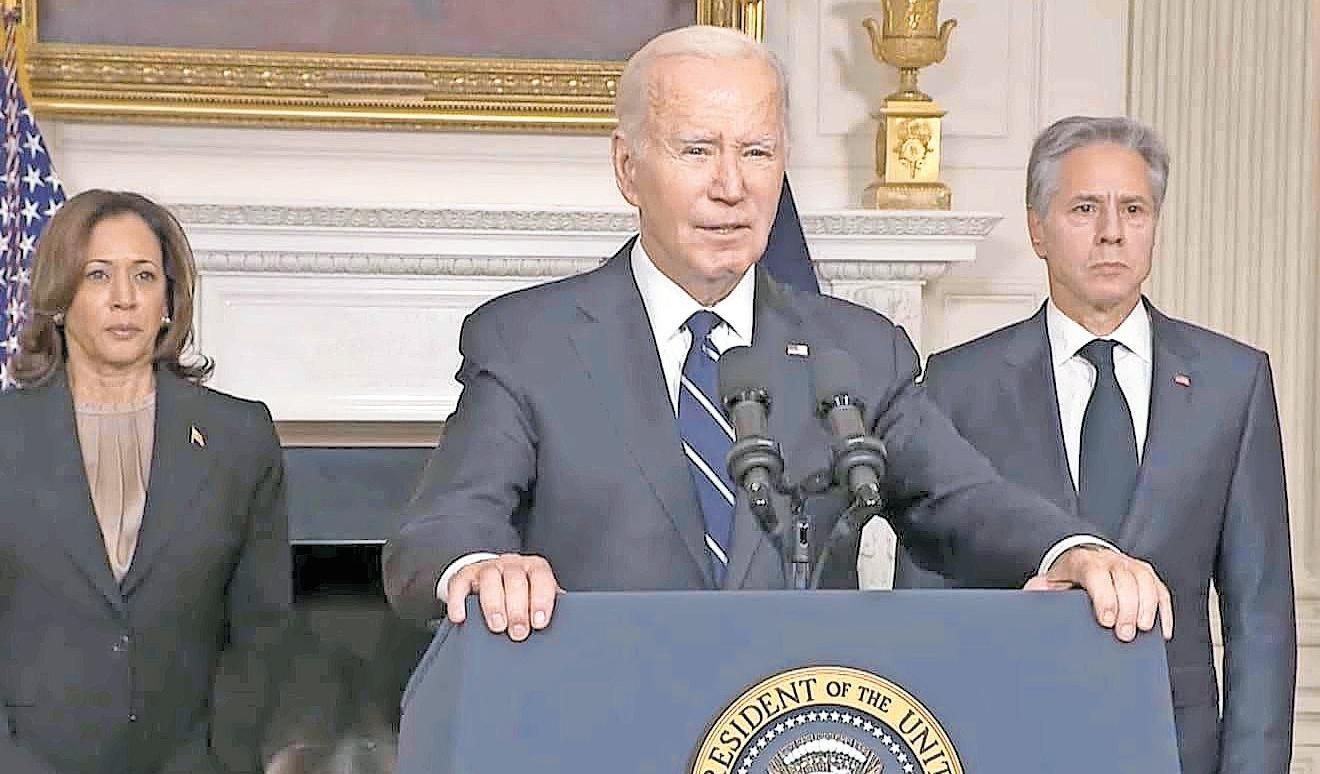
This is the text of President Biden’s televised address on Tuesday afternoon.
There are moments in this life — and I mean this lierally — when pure unadulterated evil is unleashed on this world. The people of Israel lived through one such moment this weekend in the bloody hands of the terrorist organization Hamas, a group whose stated purpose for being is to kill Jews. This was an act of sheer evil.

More than 1,000 civilians slaughtered — not just killed, slaughtered — in Israel, among them at least 14 American citizens killed.
Parents butchered, using their bodies to try to protect their children. Stomach-turning reports of babies being killed. Entire families slain. Young people massacred while attending a musical festival to celebrate peace — to celebrate peace! Women raped, assaulted, and paraded as trophies.
Families hid their fear for hours and hours, desperately trying to keep their children quiet to avoid drawing attention, and thousands of wounded alive but carrying with them the bullet holes and the shrapnel, the wounds and the memory of what they endured.
You all know these traumas never go away.
There’s still so many families desperately waiting to hear the fate of their loved ones, not knowing if they’re alive or dead or hostages. Infants in their mother’s arms, grandparents in wheelchairs, Holocaust survivors abducted and held hostage, hostages whom Hamas has now threatened to execute in violation of every every code of human morality.
It’s abhorrent.
The brutality of Hamas, this bloodthirstiness brings to mind the worst rampages of ISIS.
This is terrorism.
But sadly for the Jewish people it’s not new.
This attack has brought to the surface painful memories and the scars left by a millennia of antisemitism and genocide of the Jewish people.
So in this moment we must be crystal clear: We stand with Israel. We stand with Israel, and
we will make sure Israel has what it needs to take care of its citizens, defend itself, and respond to this attack.
There’s no justification for terrorism. There’s no excuse.
Hamas does not stand for the Palestinian people’s right to dignity and self-determination. Its stated purpose is the annihilation of the State of Israel, the murder of Jewish people. They use Palestinian civilians as human shields.
Hamas offers nothing but terror and bloodshed with no regard to who pays the price.
The loss of innocent life is heartbreaking. Like every nation in the world, Israel has the right to respond — indeed, has a duty to respond — to these vicious attacks.
I just got off the phone with a third call with Prime Minister Netanyahu and I told him if the United States experienced what Israel is experiencing, our response would be swift, decisive and overwhelming.
We also discussed how democracies like Israel and the United States are stronger and more secure when we we act according to the rule of law. Terrorists purposely target civilians, kill them. We uphold the laws of war, the law of war. It matters. There’s a difference.
Today Americans across the country are praying for all those families that have been ripped apart. A lot of us know how that feels; it leaves a black hole in your chest when you lose family, a feeling like you’re being sucked in. The anger, the pain, the sense of hopelessness.
This is what they mean by human tragedy and atrocity on an appalling scale.
We’re going to continue to stand united supporting the people of Israel who are suffering unspeakable losses, and opposing the hatred and violence of terrorism.
My team has been in near constant communication with our Israeli partners and partners all across the region and the world from the moment this crisis began.
We’re surging additional military assistance, including ammunition and interceptors to replenish the Iron Dome. We’re going to make sure that Israel does not run out of these critical assets to defend its cities and its citizens.
My Administration has consulted closely with Congress throughout this crisis. When Congress returns we’re going to ask them to take urgent action to fund the National Security requirements of our critical partners. This is not about party or politics — this about the security of our world, the security of the United States of America.
We now know that American citizens are among those being held by Hamas. I’ve directed my team to share intelligence and deploy additional experts from across the United States government to consult with and advise Israeli counterparts on hostage recovery efforts, because as president I have no higher priority than the safety of Americans being held hostage around the world.
The United States has also enhanced our
military force posture in the region to strengthen our deterrence. The Department of Defense has moved the USS Gerald R. Ford carrier strike group into the Eastern Mediterranean and bolstered our fighter aircraft presence, and we stand ready to move in additional assets as needed.
Let me say again to any country, any organization, anyone thinking of taking advantage of this situation. I have one word: don’t. Don’t. Don’t.
Our hearts may be broken but our resolve is clear.
Yesterday I also spoke with the leaders of France, Germany, Italy, and UK to discuss the latest developments with our European allies and coordinate our united response. This comes on top of days of steady engagement with partners across the region.
We’re also taking steps at home. In cities across the United States of America police departments have stepped up security around centers of Jewish life. The Department of Homeland Security, the Federal Bureau of Investigation are working closely with state and local law enforcement and Jewish community partners to identify and disrupt any domestic threat that could emerge in connection with these horrific attacks.
This is a moment for the United States to come together to grieve with those who are mourning.
Let people be real clear: there is no place for hate in America: not against Jews, not against Muslims, not against anybody. We reject terrorism. We condemn the indiscriminate evil just as we’ve always done. That’s what America stands for.
You know, just over 50 years ago … I visited Israel for the first time as a newly elected Senator, and I had a long … meeting with Golda Meir in her office just before the Yom Kippur War,. And I guess she could see the consternation on my face as she described what was being faced, what they were facing. …
She could tell, I guess, I was concerned. She leaned over and whispered to me — she said, “Don’t worry Senator Biden. We have a secret weapon here in Israel” — my word, this is what she said — “we have no place else to go. We have no place else to go.”
For 75 years Israel stood as the only guarantor of security of Jewish people around the world so that the atrocities of the past could never happen again, and let there be no doubt the United States has Israel’s back.
We will make sure the Jewish and democratic State of Israel can defend itself today, tomorrow, as we always have. It’s as simple as that.
These atrocities have been sickening. We’re with Israel. Let’s make no mistake.
Herzog: The barbarity of monsters, not humans
This is the text of President Isaac Herzog’s address on Tuesday.
As president of the State of Israel, I speak to you now from our capital city Jerusalem under the dark shadow of war, as my nation continues to endure a savage attack from a cruel and inhumane enemy. To my mind, not since the Holocaust have so many Jews been killed in one day. And not since the Holocaust have we witnessed scenes of Jewish women and children, grandparents — even Holocaust survivors — being herded into trucks and taken into captivity.
Hamas has imported, adopted and replicated the savagery of ISIS. Entering civilian homes on a holy day and murdering in cold blood whole families. Young and old. Violating and burning bodies. Beating and torturing their innocent victims — Jews and Muslims and other faiths.
The brutality. The inhumanity. The barbarity of monsters — not humans — monsters.
Over the past days, I have spoken with leaders from around the world who expressed their deep outrage at the attack, including Vice President Harris, Secretary of State Blinken,
I call on all nations around the world:
First, most importantly, make clear and loud condemnations of Hamas’s actions. Just as you condemned the abhorrent and unspeakable actions of ISIS because today, they are one and the same.
Second, those nations that have yet to do so: Designate Hamas in its entirety as a terrorist body.
Third, make clear that Hamas carries full responsibility and accountability for the wellbeing of the hostages it has taken and demand their immediate return to Israel.
And fourth, support Israel — in words and in deeds.
Israel for its part will continue to defend itself. The government of Israel, Prime Minister [Benjamin] Netanyahu, the IDF and all the Israeli security agencies have my full support. We will act with full force and unwavering commitment to eliminate this threat to our people. We will pursue all those who perpetrate and support such grievous acts against us.
I know the Israeli spirit will overcome. Unfortunately and sadly, there are hundreds of bereaved families all around the country and
thousands of injured being treated in hospitals around the country. Today and yesterday, I met some of the wounded in Asaf HaRofeh Shamir Hospital and Beersheva’s Soroka Medical Center, some of the best medical centers in the world.
If you ever want to witness the great spirit of my nation, the great spirit of the nation of Israel, you can see it in hospitals and elsewhere around the country. You will find a people united and committed to prevail, together, and come out victorious.
Let there be no mistake by any in the region who may consider operating against Israel. Israel is a very strong country and will employ all its might and strength to defend itself and its people.
I pray for the swift and full recovery of the injured, I pray for the bereaved families, and I pray for the wellbeing of those taken hostage. And through all this, with the solidarity and support of our brothers and sisters in Jewish communities all around the world, with our friends and allies all around the world, I know that Israel will emerge stronger, more resilient and united.
October 13, 2023 • 28 Tishrei 5784 THE JEWISH STAR 4
the heads of the EU, the UN, NATO and others closer to home, like my friend, President of the United Arab Emirates Sheikh Mohammed bin Zayed.
We must be crystal clear: We stand with Israel … and will make sure Israel has what it needs to take care of its citizens, defend itself, and respond to this attack.
President Joe Biden, flanked by Vice President Kamala Harris and Secretary of State Antony Blinken, delivers strongly-worded support for Israel in a televised address on Tuesday afternoon. White House
Israeli President Isaac Herzog at an event on Israel’s 75th Independence Day, April 26, 2023. Yonatan Sindel, Flash90
Israel at war: No politics or diplomacy as usual
Editorial by Jewish News Syndicate
Hamas’ Saturday morning assault on Israel was more than just a shocking demonstration of barbarism. The toll of Israeli dead and wounded — not to mention those kidnapped and taken into the Gaza Strip by these murderers — is sickening. And it should alarm and enrage civilized people everywhere.
The full extent of the horror on the southern border, coupled with a barrage of thousands of rockets and missiles fired at Israeli villages, towns and cities, is yet to be determined. Nor can we be sure what will follow after the first day of what Israeli Prime Minister Benjamin Netanyahu has rightly characterized as a “war,” and whether it will spread to include Iran and its Hezbollah terrorist auxiliaries in Lebanon.
But we do know this: It is an event that changes the Middle East. All the rules that have governed the way Jerusalem deals with its terrorist foes and their Gaza stronghold since it fell under Hamas control in 2006 — in which the Israeli government and military have always sought to limit the conflict — must now be thrown out.
Above all, it must be an end to politics and diplomacy as usual in Israel, the Diaspora and the West.
Whatever strategies and tactics that the Jewish state adopts as it seeks to reassert control over its border, rescue those held hostage and punish those responsible for these crimes, some basic principles must govern the response to these events.
The first is that the Jewish people and those who care about Israel must unite. After a year of political division and a culture war that threaten to tear Israeli society asunder and undermine its economy and security, those arguments must cease, there and elsewhere. The magnitude of this crisis is comparable to that of Israel’s wars in 1948, 1967 and 1973, and so must be the response of those who claim to be Israel’s friends and supporters.
It may be difficult to imagine the current politically fractured, more heavily assimilated Jewish community of the United States, that is far more alienated from Israel than it once was, coming together as it did during those days. But nevertheless, that is the model that the Jewish world and sympathetic non-Jews must follow. It must be clear to the world that when Israel is under attack and Jews are being murdered, the solidarity of the Jewish people and decent people everywhere with Israel must be unquestioned.
Second, there must be no tolerance or acceptance of the usual narratives and biased media coverage of the conflict, that focus more on Israel’s responses than on Palestinian terrorism itself, and which often seek to demonize the Jewish state’s justified measures of self-defense.
Those who seek to wipe Israel off the map — whether by terrorism or political means — are engaging in a global attack on the Jewish people. The rising tide of antisemitism that is sweeping across the world in recent years is driven in large
part by anti-Zionist propaganda. Anything that seeks to legitimize the goals of the terrorists to destroy Israel must be rightly labeled not just as hateful but as a form of antisemitism that must not be normalized or allowed to be represented as part of mainstream opinion in the West.
If Hamas cared about the safety of the Palestinian Arabs languishing under their tyrannical Islamist rule in Gaza, they would not have started this war. They will, no doubt, continue to use the people under their control as human shields. That is a tragedy, but worries about the suffering of Palestinians caused by Hamas’s ac-
tions cannot be allowed to color the responses to efforts to save Israeli hostages and take out the terrorists and their military infrastructure.
The civilized world must fully support Israel’s counterattack. Any talk of proportionality or the need for restraint on the part of Israel as it copes with this assault on its citizens should be rejected.
Such bloody terrorism is not a natural response to Palestinian frustration or an effort — as Hamas falsely asserts — to prevent harm from being done to the mosques on Jerusalem’s Temple Mount.
When Hamas talks about ending the “occupation,” it is not speaking about pushing Israel back to the 1967 armistice lines or complaints about Jews living in the heart of their homeland in Judea and Samaria or Jerusalem. As far as Hamas and other Palestinian groups are concerned, “occupation” refers to the existence of Israel within any boundaries. Their goal is not freedom for their people; if that was what they wanted, the Islamists as well as their supposedly more “moderate” opponents would have accepted any one of the compromise peace offers extended to them in the past. What they want to do is to kill Jews and eliminate the Jewish state.
Sadly, such sentiments are also part of mainstream Palestinian political thought and culture. The shameful scenes in which Palestinians have
been shown celebrating terrorism and exulting over the dead bodies of murdered Jews or hostages must not only not be forgotten; conclusions should be drawn about what this means in terms of the future of the conflict and what the goals of diplomacy should be.

Any reporting about this war that doesn’t make that clear isn’t merely biased against Israel, but constitutes an adoption of terrorist talking points that legitimize their wrongful insistence on continuing their century-old war on Zionism that has become inextricably tied up with Palestinian national identity.
Third, Hamas and its allies must gain no political or diplomatic benefit from their crimes.
The current imperative for American foreign policy and that of other nations must be to ensure that this unprovoked and appalling tragedy is not exploited by the forces that have launched this war.
Any discussion in the current context of redoubled efforts to resurrect a two-state solution to the conflict, that Palestinians have repeatedly rejected over the past decades, must end. On the contrary, the existence of the terrorist-run independent Palestinian state in all but name in Gaza is proof that such a plan is a guarantee of more suffering and bloodshed.
Hamas — no doubt acting with the knowledge and support of Iran — seeks to derail the widening circle of peace in which Arab states have embraced normalized relations with Israel. This war is clearly, at least in part, a response to efforts to involve the Palestinians in negotiations between Saudi Arabia and Israel. The Jewish state’s burgeoning alliance with the desert kingdom is the result of rational assessments of the national interests of both Middle Eastern countries and their mutual fears about Tehran’s quest for regional hegemony and a nuclear weapon. This war is a reminder that the Palestinians must no longer be allowed to hold Arab nations hostage to their intransigent refusal to accept the legitimacy of a Jewish state.
There will be time enough in the days and weeks ahead to fully assess how much responsibility those who have sought to appease both the Palestinian terror organizations and Iran must bear for this tragedy. The same is true with respect to assigning blame for what can only be termed a catastrophic failure on the part of Israel’s security establishment.
But for now, the priority must be to ensure that Israel’s borders are protected, its people’s safety ensured, and that those responsible for these criminal acts are severely punished and no longer able to launch attacks on the Jewish state with impunity. Any other response from individuals, organizations and their leaders, politicians or governments is unacceptable.
May G-d watch over the people of Israel and those tasked with their defense. May their efforts be victorious. And may the hateful enemies of the Jewish state be made to understand that their crimes and evil intentions will no longer be tolerated by the civilized world.
Bialik, Baal Shem Tov, the Shoah … ahavat Yisrael
friends and families were beaten, murdered and raped. Bialik describes it vividly:
Come, now, and I will bring thee to their lairs
The privies, jakes and pigpens where the heirs Of Hasmoneans lay, with trembling knees, Concealed and cowering — the sons of the Maccabees!
This is an excerpt from a column originally published in May 2022.
In recent days, two voices from Ukraine have been calling out to me. Chaim Nachman Bialik had been a student of Volozhin Yeshiva, but left to become a poet, scholar and publisher. In 1903, after the Kishinev pogrom, Bialik wrote what is arguably the most influential poem in the Hebrew language: “B’ir Haharegah (In the City of Slaughter).” It was a furious indictment of Jewish cowardice. Instead of fighting, the Jews of Kishinev hid during the pogrom, while their
It was the flight of mice they fled, The scurrying of roaches was their flight; They died like dogs, and they were dead!
Bialik is saying “enough” — enough to Jewish cowardice, enough to begging the non-Jewish world to offer a bit of tolerance. Jews must take control of their destiny. It was a clarion call, one answered in the following decades by pioneers who renewed the Jewish spirit and rebuilt the Jewish state. …
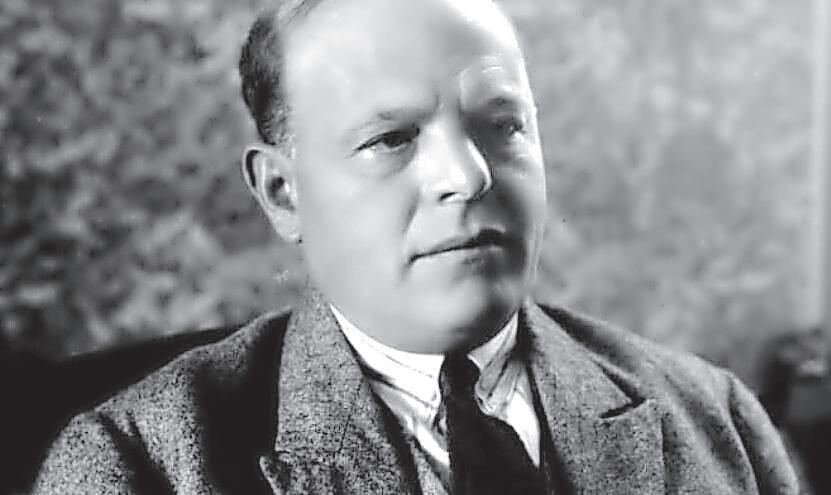
Calling from even further in the past is Rabbi Yisrael Baal Shem Tov, the founder of the Hasidic
movement. He revolutionized the Jewish world and taught a community that was broken in spirit the importance of faith, perseverance and love.
The Baal Shem Tov taught: “One must have total self-sacrifice and dedication for love of one’s fellow, even towards a Jew whom one has never
seen.” The Jewish family is our responsibility, and the mitzvah of ahavat Yisrael, loving one’s fellow Jew, requires dedication and devotion.
This has always been the ideal, but it has not always been the reality.
When the Jews of Kyiv were being murdered in Babi Yar, American Jews averted their eyes. Rabbi Haskel Lookstein, in his book “Were We Our Brothers’ Keepers?: The Public Response of American Jews to the Holocaust, 1938-1944,” reviews the halfhearted actions of the American Jewish community during the Holocaust. His final paragraph concludes: “The Final Solution may have been unstoppable by American Jewry, but it should have been unbearable for them. And it wasn’t.”
During the Holocaust, we were not our brother’s keepers.
Rabbi Chaim Steinmetz is senior rabbi of Congregation Kehilath Jeshurun in New York.
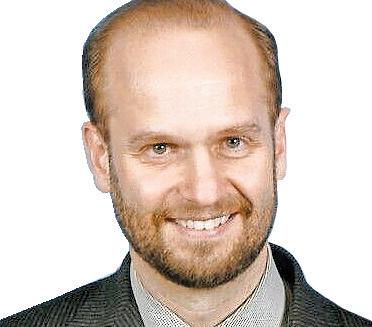
THE JEWISH STAR October 13, 2023 • 28 Tishrei 5784 5
The responses to Hamas barbarism must include Jewish unity, an end to biased media coverage of Palestinian terrorism, and a refusal to let these murderers profit from their crimes.
Family and friends attend the funeral of Israeli soldier Uri Mordechai at Mt Herzl in Jerusalem on Oct. 10.
Noam Revkin Fenton, Flash90
RABBI CHAIM STEINMETZ Kehilath Jeshurun, NYC
Chaim Nachman Bialik.
S O C L A S S Y &
Conservatives must not join Code Pink’s ruinous anti-Ukraine policy
clifford
One of our latest reviews:
"My dad was brought here last night The staff was so pleasant and attentive We had a special but reasonable request in terms of his care and the nurse quickly conveyed that request to the doctor by text ( it was after 9:30 at night ) and , wow , he responded quickly in the affirmative The place is so classy and modern looking as well The lounge even has a sun room! Wow !" - LI, Manhattan
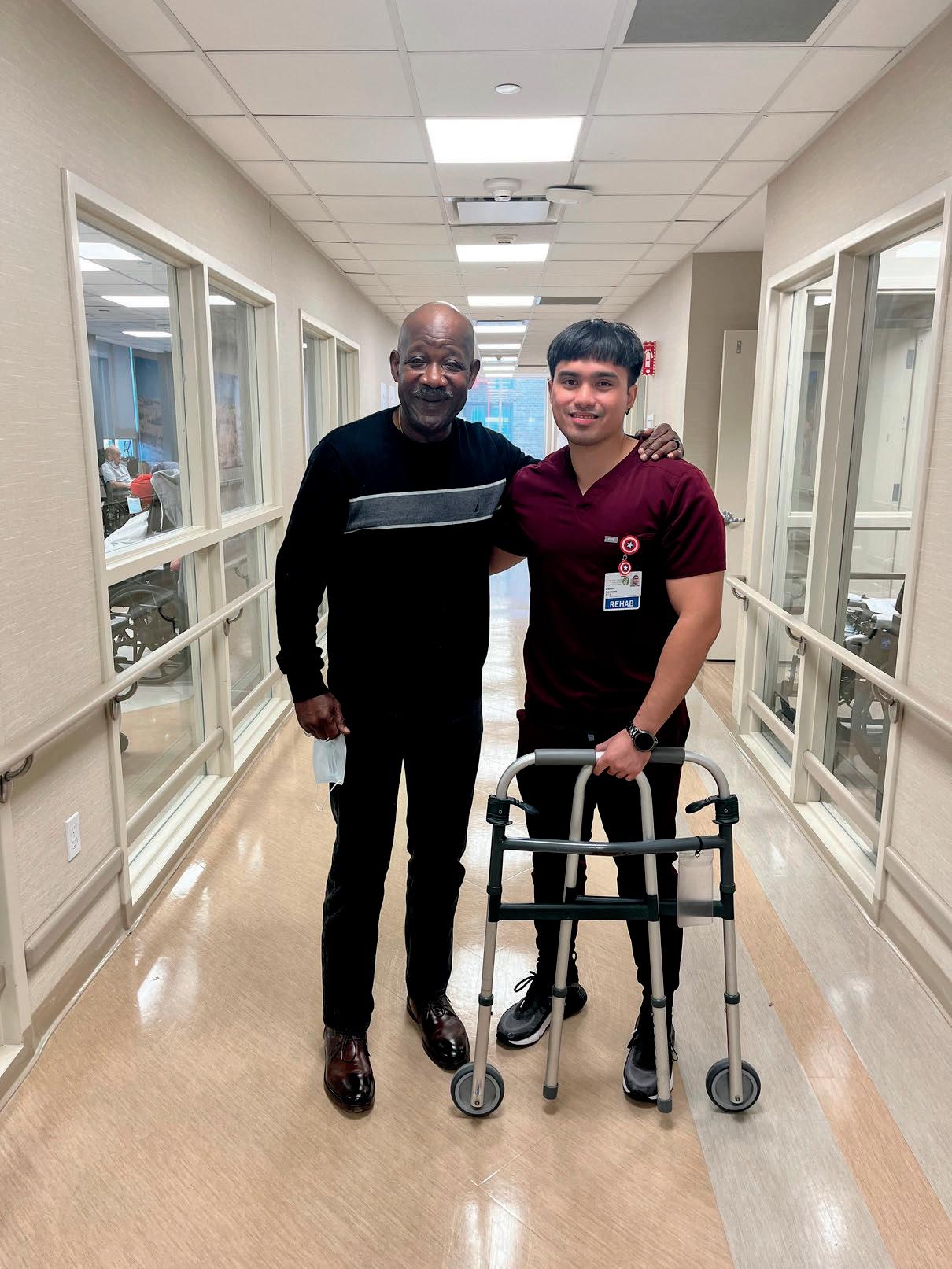
New look. Same care.

85% Private Rooms
Separate Kitchens for Meat + Dairy (Cholov Yisroel | VHQ)
Full time Rabbi On-Staff




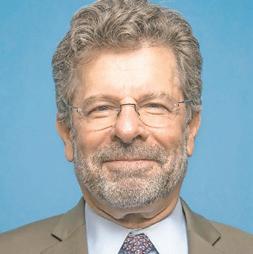
Exclusive to Margaret Tietz:
Virtual Reality REAL Therapy System
Shabbos Minyanim


Full Holiday Schedule
Shabbos Hospitality Apartment
Special Holiday Meals Beautiful Gardens Shabbos Elevator Community Eruv
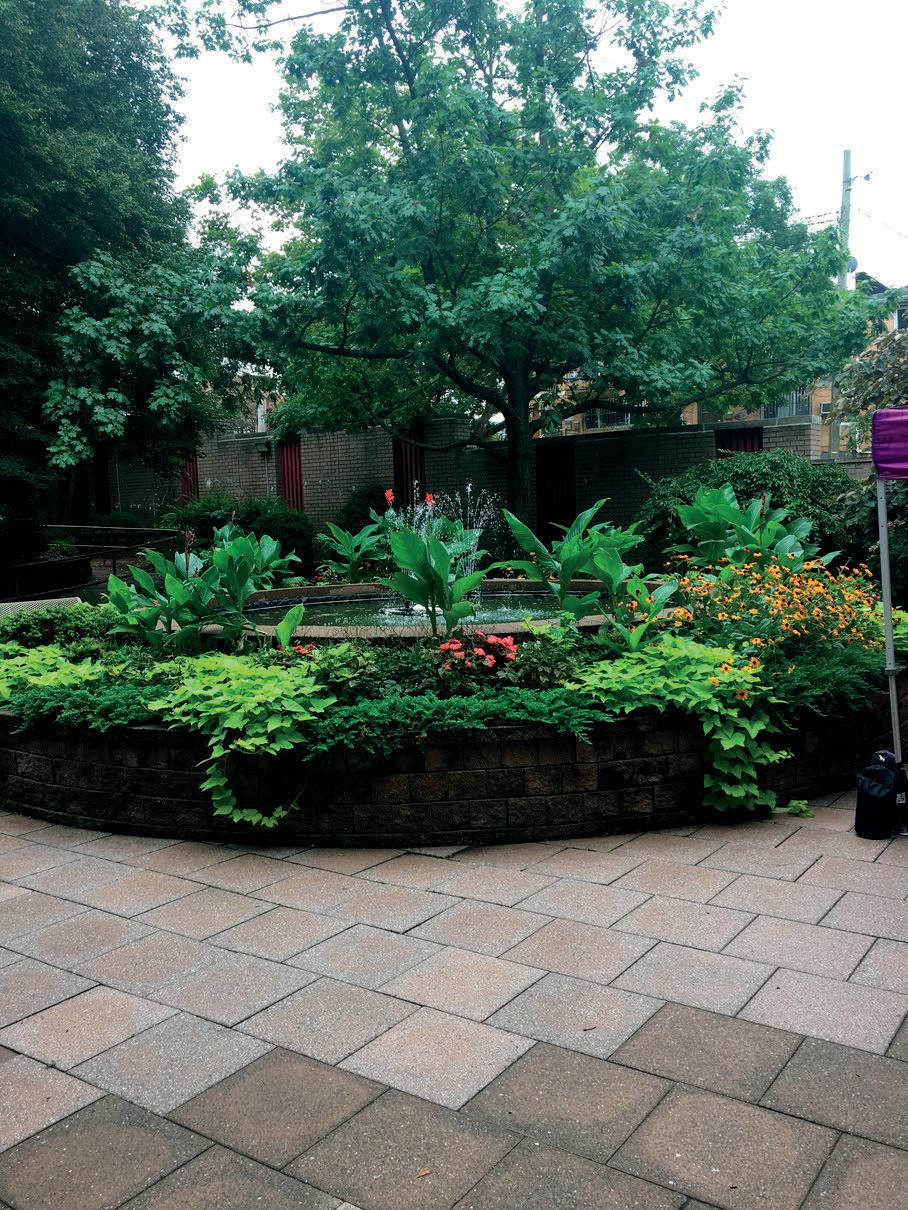
718-298-7806 • margarettietz org
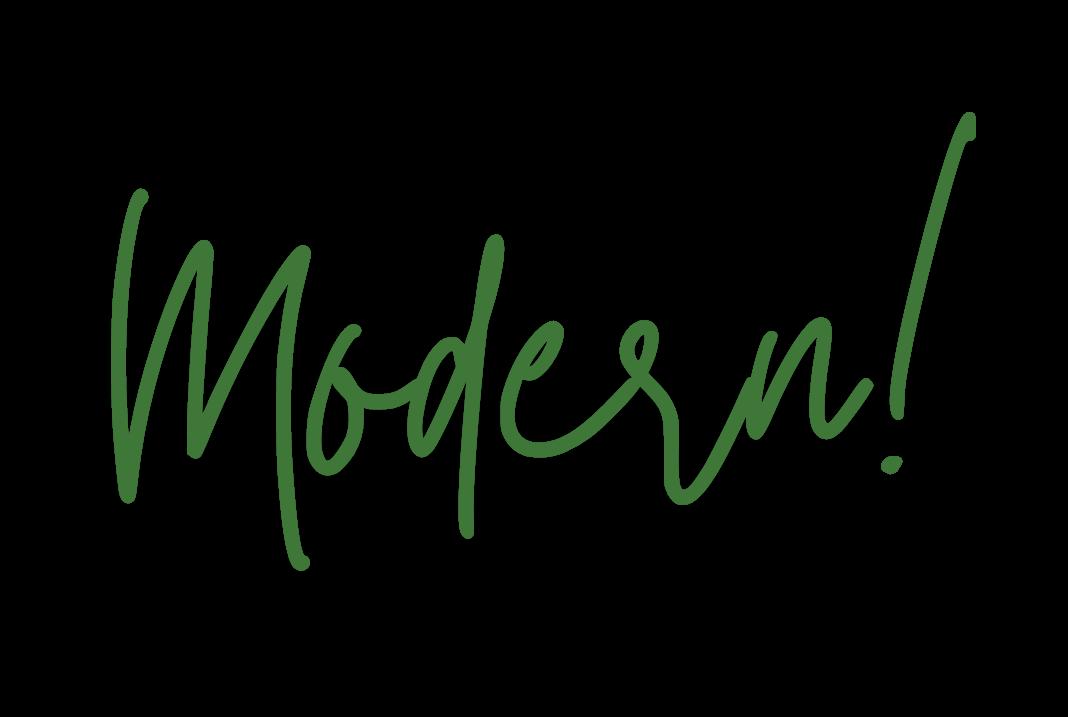

164-11 Chapin Parkway, Jamaica Hills, NY 11432
In 2011, President Obama withdrew all US troops from Iraq. The result was the rise of Islamic State followed by Tehran’s deeper penetration into the country. Can we agree that Obama made a grievous strategic error?
In 2021, President Biden withdrew all US troops from Afghanistan. The result was a swift takeover of the country by the Taliban in association with Al-Qaeda. Can we agree that Biden made a grievous strategic error?
The United States has no troops in Ukraine. Ukrainians only ask for the weapons they need to defend themselves from invaders waging a war of conquest. Can we agree that abandoning them would be a grievous strategic error?
The answer, apparently, is no.
On the left, such groups as Code Pink demand Congress “end the costly and deadly war by prioritizing diplomacy over weapons.”
And on the right, more than half of House Republicans aligned with Code Pink by voting against additional military assistance for Ukraine.
An old national security hawk like me can’t change the minds of far-left blame-Americafirsters. But I can remind those of you in the center and center-right that cutting off military assistance to Ukraine would benefit Communist China, Communist North Korea and Islamist Iran — all of whom have expansionist ambitions of their own and all of whom want to repeal the American-established international prohibition against erasing nation-states by military force.
Putin’s decision to attack Ukraine was informed by his perception that America and Europe would not respond in any significant way. He continues to believe that American and European resolve will prove weaker than his.
Those who favor cutting support for Ukraine make many arguments. I’ll attempt to rebut 10 that, at first glance, may appear convincing.
1. We can’t afford it.
Since February 2022, only the equivalent of 3.5% of Pentagon spending has gone to assist Ukraine. That investment has significantly reduced the military capabilities of America’s No. 2 adversary.
Most American dollars earmarked for Ukraine’s resistance go to American workers in
American factories whose output replaces the old weapons we’re sending to Ukraine with new weapons. Some of those new weapons will be improved because Ukrainian warfighters are testing them in combat.
Another benefit: We are now awakened to the fact that our defense/industrial base is woefully inadequate. It’s vital that we fix it.
2. Ukraine war is only a territorial dispute. That was the dominant — and incorrect — theory after Putin carved two provinces from Georgia in 2008, and annexed Crimea in 2014.

Putin sees himself as a latter-day czar/commissar. His mission is to restore the Russian/Soviet empire. As Edward Lucas, the British Russiawatcher, journalist and author of “The New Cold War” — first published back in 2008 — told me recently: “An imperial Russia can’t be at peace with its neighbors.” More than a few of those neighbors are NATO allies.
3. If we pivot away from Ukraine, we’ll be able to focus more intensively on defending Taiwan from Xi Jinping, China’s ruler.
Do you not think that Xi would ask himself: If the Americans fatigue this easily, how many of their ships will I need to sink before they turn tail and let me run roughshod over Asia and beyond?
4. Ukraine is riddled with corruption and therefore not worth saving.
There’s no evidence of American weapons being diverted outside of Ukraine. As for funds, both the United States and Ukraine now have stringent oversight in place, though more would doubtless be better.
Recall that corruption was a huge problem in South Korea when we saved it from Communist domination. Today, Transparency International rates that county higher than Portugal, Spain, or Italy. And need I remind you that corruption has not been eliminated in the United States?
5. The US should not be concerned with Russian tanks illegally crossing Ukraine’s borders so long as millions of aliens are illegally crossing America’s borders.
The problem is not that Biden lacks the resources to secure the border. The problem is that, in deference to “open border” advocates, he refuses to try.
6. Ukraine is Europe’s problem.
Under the 1994 Budapest Memorandum on Security Assurances, Ukraine agreed to give up its nuclear weapons in exchange for a pledge by the United States “to provide assistance to Ukraine … if Ukraine should become a victim of
See May on page 24
Damage to a residential building in Zaporizhzhia, Ukraine, following a Russian airstrike on Oct. 9, 2022. Ukraine National Police via WikiCommons
d. may
October 13, 2023 • 28 Tishrei 5784 THE JEWISH STAR 6
1231208
Living our core mission value of Torat Yisrael means that every NSHA student graduates with a passion for loving and protecting the people and state of Israel.

We honor our alumni and community members who are proudly serving in the Israel Defense Forces and today are on the front lines in Israel ensuring the secure future of our homeland.
Please join us at our High School Open House
Sunday, October 29, 2023 • 9:30am 400 N. Service Road, Great Neck, NY 11020
Rabbi Dr. Jeffrey Kobrin Rosh HaYeshiva/Head of School
Ira M. Miller Dean
Register by visiting www.nsha.org/openhouse
Strengthen the hands of those who defend our holy land, grant them deliverance, and adorn them in a crown of victory.
THE JEWISH STAR October 13, 2023 • 28 Tishrei 5784 7
1229987
Anti-Zionism as antisemitism. There’s no doubt
Farley Weiss leonard Grunstein
At the conclusion of the traditional Yom Kippur service, we joyfully declare, “Next year in Jerusalem,” in Zion. It is a heartfelt and reinvigorating moment after a grueling day of fasting and prayer, and many dance while singing it. Similarly, on Passover, everyone participating in the seder makes the same declaration.
Judaism is unique in its attachment to Jerusalem. The Tanach mentions Jerusalem more than 650 times. The Quran, on the other hand, does not mention it at all. Psalms 137:5 declares, “If I forget you, O Jerusalem, let my right hand lose its skill.” There is no comparable expression in non-Jewish scripture.
In Judaism, Jerusalem is a living focus of prayer and mourning rituals. When praying, one is required to orient heart and face towards Jerusalem. Neither Christian nor Muslim rituals and practice require this orientation. Indeed, Muslim custom is to face Mecca, not Jerusalem.

Mourning rituals are also uniquely associated with Jerusalem. Thus, the traditional condolence recited to mourners is ”May you be comforted among the other mourners of Zion and Jerusalem.” There is no such custom in Islam or Christianity.
Judaism also requires one to rip clothing upon approaching Jerusalem and the place where the Temple stood, as when mourning for a parent. First, the garment is ripped where it covers the heart in mourning for the Temple, then the rip is extended in honor of Jerusalem. There is no comparable Christian or Muslim ritual.
Even the traditional Jewish wedding ceremony is not com-
plete until a glass is shattered and the verses from Psalm 137 expressing our integral attachment to Jerusalem are recited. This is done to express our grieving for the destruction of the Temple and remember Jerusalem, even at moments of extreme joy like a wedding.
The classic Jewish prayer service is replete with references to Jerusalem. For example, the quintessential prayer the Shemoneh Esrei includes blessings expressly devoted to the rebuilding of Jerusalem. The prayer is recited three times daily. It was reportedly composed in the time of the Great Assembly, which included the prophets Haggai, Zachariah and Malachi, approximately 2,500 years ago. Many other prayers reference Jerusalem, including a special blessing in the grace after meals.
There are four fast days devoted to remembering Jerusalem. The most onerous is the 25-hour period of rigorous fasting and acute mourning on Tisha B’Av, which marks the destruction of the First and Second Temples.
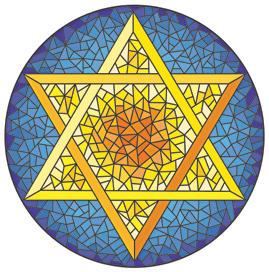
To deny the intimate link between Judaism and Jerusalem is to deny one of the most fundamental tenets of Judaism. To deny and try to sever this connection by advocating the destruction of the State of Israel is antisemitism.
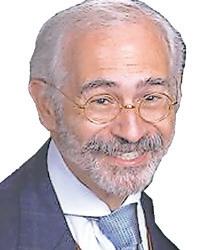
President Joe Biden, in his recent meeting with Israeli Prime Minister Benjamin Netanyahu, summed it up when he said, “I think without Israel, there’s not a Jew in the world who’s secure. I think Israel is essential.”
During the Holocaust, there was no Jewish state to escape to. As a result, six million Jews were slaughtered by the Nazis and their collaborators. In striking contrast, when Jews were held captive in the former Soviet Union, we marched to free them and help them immigrate to the Jewish state. Thank G-d they were freed and many did eventually come to Israel and thrive there. When Ethiopian Jews were at mortal risk, it was Israel that, thank God, came to their rescue.
The International Holocaust Remembrance Alliance’s definition of antisemitism recognizes this reality. Seeking to delegitimize, demonize and eliminate the only Jewish state on the planet is antisemitism. Israel is being singled out because that’s where the Jews are. Stop the charade: To divest the Jewish people of their own state and put them at mortal risk is to commit a crime against humanity of historic proportions.
In our new book, “Because it’s Just and Right: The Untold

antiZionism is
antisemitism
Back-Story of the US Recognition of Jerusalem as the Capital of Israel and Moving the US Embassy to Jerusalem,” we thoroughly debunk the false narratives surrounding Israel and Jerusalem. We show that the Jewish people’s connection to Israel is undeniable and it is just and right that they have a state of their own.
The University of Pennsylvania recently allowed its facilities to be used for an antisemitic hate-fest called Palestine Writes. It included some of the most notorious antisemites in the United States and elsewhere.
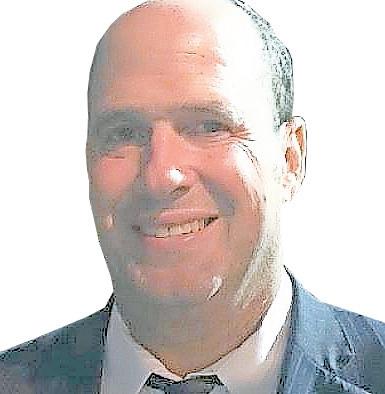
Penn President Liz Magill wrote to co-author Farley Weiss, an alumnus of the university, “Let me state emphatically: the inclusion of speakers in this event who have a history of antisemitic rhetoric and behavior which denigrates Jewish people is deeply offensive, misaligned with the festival’s stated purpose and stands in direct contrast to the university’s values.”
However, it appears that Penn has hired faculty that contradict these values, because numerous faculty and departments cosponsored the festival. Many faculty attended and encouraged students to attend.
Will President Magill make it clear that Penn will stop hiring such faculty and that any faculty supporting attendance at an antisemitic festival should look elsewhere for employment?
Unfortunately, there appear to have been no negative repercussions for any Penn faculty who attended or promoted this antisemitic festival. Paying mere lip service to opposing antisemitism while providing a forum for antisemites is unacceptable. Would Penn provide a forum for white supremacy or for those advocating the reinstitution of chattel slavery? It is very unlikely that their dedication to free speech and academic freedom would go that far. May the new year be one of triumph over the evil forces of antisemitism.
Denying the Jewish right to the Land of Israel is a crime against humanity.
October 13, 2023 • 28 Tishrei 5784 THE JEWISH STAR 8 1232943
A remarkable story of resistance, community, and escape. Denmark’s citizens – Jews and non-Jews alike – staged one of the greatest rescue operations of all time during the Holocaust. For students grades 4 and up.


Courage to Act: Rescue in Denmark is made possible with leadership support from Regina Skyer, Jonathan Goldberg, and Family; Bruce Ratner and Family; and Jane Oster Sinisi and the Oster Family Foundation. Generous support is provided by presenting partners Ulrika and Joel Citron; Amy and Rob Feilbogen; Yes I Can – Simcha & Ruchi Feller; Patti Askwith Kenner and Family; Jacob, Logan and Jackson Kirschner; and The Pickman Foundation.

“It was the right thing to do, so we did it. Simple as that.”
Museum of Jewish Heritage – A Living Memorial to the Holocaust | Edmond J. Safra Plaza, 36 Battery Place, New York, NY 10280
– HENNY SINDING SUNDØ
Opens October 15, 2023
1232695
mjhnyc.org/couragetoact
Grandma outsmarts Hamas inside her home
By Etgar Lefkovits, JNS
The Hamas gunman aimed his rifle at the elderly couple in their home in southern Israel early Saturday morning. He held a grenade on Rachel Edri’s head, began screaming “Allah Akbar” and announced he was a “martyr.”
But Edri maintained her composure.
Thinking quickly, she offered the group of five terrorists refreshments, and later a meal, engaging them in small talk, playing for time until security personnel could arrive.
For the next 20 hours, Rachel and her husband, David, underwent a harrowing ordeal with the five Palestinian terrorists holed up in their home.
“I do not know how I am alive,” she recounted in an interview on Sunday.
It was around 7 am on Saturday when the rocket warning siren wailed in the city of Ofakim, about 12 miles west of Beersheva and far out of range of the Israeli communities along the border with Hamas-run Gaza. The Edris made their way to the community shelter to take cover from the thousands of rockets that Hamas had just blasted at Israel in a coordinated, multi-stage surprise assault that would be the most lethal attack on the country in the last half century.
As they made their way back to their home, Edri noticed that one of the bedroom windows had been broken into, when suddenly she and her husband were surrounded by the five armed Hamas terrorists who had broken into their home during the rocket attack.

“My first thought was my two sons because they are in the police forces,” she recounted in the interview. “Thank the Lord they weren’t home because I was afraid they would be murdered first.”
The attackers, who were also armed with a rocket launcher, then placed a grenade on Edri’s head and aimed their Kalashnikov rifles at her and husband, ordering them inside their home.
“I started to talk to them. Have you had something to drink? Would you like tea or coffee?” she offered, seeking to distract them.
Meanwhile, an elite police force had arrived outside their house, accompanied by her police officer son, who had gotten word of the attack and rushed to his parents’ house. An officer attempted to negotiate with the terrorists to get Rachel released, to no avail.
“No, we will all die,” one of the terrorists responded to an offer to speak with his family by phone, she related.
Edri had the police negotiator bring in coffee and cookies, which they placed at the edge of the room.
“It was like we were in a dream and we did not know what would happen to us,” she recounts.

As the time passed, Edri was concerned that her captors would get agitated due to hunger, and offered them lunch.
“If they were hungry that would have been the end of me and my husband,” she said.
Undeterred by the ever-present danger, Edri began to talk with her captors, asking them where they were from and trying to dissuade them from their planned murder.
“I told them don’t do it — we are brothers,” she said.
“No, I am a shahid,” one of the terrorists replied, using the Arab word for martyr, and pointed his gun at her husband.
“Rachel, they are going to shoot us,” her husband said. “He was totally helpless,” she recalled.
“Come sit by me,” she told her husband. “We will read the [Jewish prayer of] Shema Yisrael and G-d will be with us,” she added.
Later, the hostage negotiator asked Rachel
from just outside how many terrorists were in the house. She put her hand on the side of her head and signaled five with her fingers.
“Rachel, don’t you dare,” the terrorist warned her. “I just have a headache,” she responded.
Meanwhile, outside their house a gun battle ensued, leaving one of the captors, who had stepped out, dead. But four remained inside.
As the afternoon wore on, Edri offered to bandage the injured hand of one of the terrorists, and, seeking to soothe him, brought him water as well as some canned pineapple. “You look pallid, “she told him. Take something to eat; you will feel better.”
As night closed in, the attackers became anxious that they would be surrounded, and Edri herself began to lose it herself, despite her outward demeanor.
“I didn’t think we would make it,” she confessed. “I kept reading the Shema Yisrael.”
Outside, the elite rescue team was getting ready to make their move.
From just outside their home, the Edris’ son had drawn them a detailed diagram of the building’s interior. He begged to join the team but was told he could not.
At night, Edri was near her husband on the couch, with the four terrorists less than two feet away. In the early morning hours, the rescue team, aided by a drone and the outline of the house that their son had drawn, burst into the home through the roof with a special rescue dog, killing all four terrorists.

The Edris escaped unscathed. Rachel’s only injury was an inadvertent scratch from the dog.
“I just don’t know how I am alive,” she recounted on Sunday. “I just don’t know how I am living.”
As she was walked to the hospital by the security forces she kept thanking them, expressing disbelief that she was alive and thanking them for their heroism.
“No Rachel, we’re not the heroes,” one of them replied. “You’re the hero.”
October 13, 2023 • 28 Tishrei 5784 THE JEWISH STAR 10 1231384 A Full Service Salon 1344 Broadway Hewlett • 516-295-4011 @ theambiancesalon • theambiancesalon.com WIGS, TOPPERS AND CLIP-INS HAIR LAUNDRY SERVICE DROP OFF IN THE A.M and PICK UP IN THE P.M. 1232946
Rachel Edri and her husband David were held hostage in their home in Ofakim for 20 hours until rescued by Israeli security forces.
At Episcopal Health Services, we recognize that women’s health needs are unique. That is why we offer comprehensive services including:
• Obstetrics & Gynecology
• Maternal-Fetal Medicine
• Gynecology-Oncology
• Breast Surgery
• Urogynecology
• 3-D Digital Mammography
• Diagnostic Ultrasounds
• Breast Biopsy Procedures
• Bone Density Testing
• Nutrition Services
At Episcopal Health Services, we recognize that women’s health needs are unique. From gynecology, pregnancy, childbirth, maternal fetal medicine, and urogynecology, our physicians approach health care with each patient’s specific needs in mind. New patients are welcomed and same-day appointments are available!*


Our physicians approach healthcare with each patient’s specific needs in mind. New patients are welcomed and same-day appointments are available!*
To schedule an appointment online visit ehs.org/obgyn or call 718-869-7500
To schedule an appointment online visit ehs.org/obgyn or call 718-869-7500
*Same day appointment availability not guaranteed.
*Same day appointment availability not guaranteed.
THE JEWISH STAR October 13, 2023 • 28 Tishrei 5784 11
The
O.
Women’s Center
Rockaway
Blvd.
From Prenatal Care to Senior Health, Quality Women’s Healthcare for Every Stage of Life.
Margaret
Carpenter
| 105-38
Beach
1232683
Women’s
From Prenatal Care to Senior Health, Quality Women’s Healthcare for Every Stage of Life. The Margaret O. Carpenter
Center | 105-38 Rockaway Beach Blvd.
Celebrating the delights of fall’s harvest

The summer is over, there’s been no Indian summer warmth (so far) this year, and the harvest season is in full swing. Farm stands have dragged out their apple bins and workers are busy filling them with new kinds of apples every day. We have as many as 15 to 20 varieties each fall — it smells delicious!
The corn is still coming in, but in the last dribs and drabs, still delicious, but not the taste of August corn. The tomatoes are almost totally harvested, and those bins are now being filled with fall’s favorite squashes and gourds, home-grown leeks, onions, fragrant fresh shallots, and homegrown garlic.
The ancient calendar celebrated some of the holidays near the time of the harvests of the year. Sukkot celebrates the harvests of many varieties of foods that we just ate in the sukkah. Out of necessity, ancient people ate seasonally and feasted on the bounty of whatever crops they gathered. Each season provided different crops and the people ate accordingly. No pomegranates in winter, or apples in the heat of summer.
Now, seasons mean practically nothing as far as fruits and vegetables are concerned. There are very few fruits or vegetables that we cannot buy yearround. (I can think of Cherries and Satsuma oranges that have limited seasons — two of my favorites that have relatively short seasons.) But staples like lettuces and so much more are available to us any day of the year. We are blessed with so much healthful food at our fingertips whenever we want it.
We are also blessed with the ability to get our
produce from many countries throughout the world. We can buy hundreds of varieties and new ones are introduced often. Monk fruit, ugly fruit, star fruit, Romanescu, white sweet potatoes — so many varieties that are relatively new. Check the labels/tags on your produce and maybe have the kids keep track of how many countries help feed us through the year. Also, remember that eating seasonally can be a delicious harvest delight, but eating all kinds of produce all the time will help get that rainbow of foods into your diet throughout the year.
Butternut Squash Crumble (Dairy)
I love this recipe adapted from David Lebovitz’s book, “My Paris Kitchen.” Great with fish! You can make it pareve by leaving out the cheese and substituting pareve margarine for the butter.
• 2 Tbsp. butter (adds flavor, but you can use all olive oil)
• 2 Tbsp. extra virgin olive oil (4 Tbsp. if not using butter)
• 4 lbs. butternut squash, cut in 3/4-inch dice
• 2 tsp. fresh thyme leaves, finely minced
• Kosher salt and freshly cracked black pepper, to taste
• 1/2 cup thinly sliced shallots, more to taste
• 1 cup no-chicken stock or veggie stock
• 2 Tbsp. fresh flat-leaf parsley, finely minced
Crumble topping:
• 3/4 cup breadcrumbs
• 1/2 cup cornmeal (I did not have any, so I used all breadcrumbs)
• 1/2 cup grated parmesan cheese
• 1 Tbsp. minced fresh sage leaves
• 1 tsp. sugar
• 1/2 tsp. kosher salt
• 4 Tbsp. butter, chilled and cubed
• 1 large egg
Preheat the oven to 375 degrees. Generously grease a 3-quart glass baking dish and set aside.
Place 1 Tbsp. each of the butter and olive oil in a large skillet over medium-high heat. Heat until the butter is melted. Add half the squash and half the thyme. Season with salt and pepper and sauté, stirring often, until the squash begins to brown on several sides. Add half the shallots and cook until they are softened. Add 1/2 cup of the stock and cook for 30 to 60 seconds to reduce the liquid a bit. Scrape the squash into the prepared baking dish. Repeat this process with the remaining squash and other ingredients. (NOTE: It is important to do this in two batches so that the squash browns evenly.)
Press the squash firmly into an even layer. Cover tightly with foil and bake for 30 minutes, or until the squash is very soft when you pierce it with the tip of a knife.
While the squash is baking, make the topping.
Place the breadcrumbs, cornmeal, parmesan, sage, sugar, and salt in the bowl of a food processor. Pulse to blend. Add the cold butter and pulse until crumbly. Add the egg and pulse just until the mixture begins to clump together.
Remove the squash from the oven, carefully remove the foil and crumble the topping evenly over the squash. Lower the temperature to 350 and return the casserole to the oven. Bake for about 20 minutes or until golden. Serves 6 to 10.
Zucchini, Roasted Tomatoes, Eggplant and Fresh Herbs (Pareve)
Great as a side dish or mixed with spiral zucchini or pasta. Add mushrooms and ers, if you like.
• Extra to virgin olive oil
• 12 (or more) plum tomatoes or 30 to 40
large cherry tomatoes
• 4 to 5 medium or large zucchini or yellow summer squash
• 2 to 3 eggplants, peeled
• 1 small jar sundried tomatoes in oil, chopped OR
• Sliced fresh tomatoes, 3 to 4
• 1 Tbsp. each: Fresh basil, minced
• Fresh thyme, minced
• Fresh parsley, minced
• 6 to 12 cloves garlic, finely minced
• Salt and freshly ground black pepper, to taste
Preheat the oven to 400 degrees. Line 2 large, rimmed baking sheets with foil and then parchment paper. Set aside. Generously brush the paper of one pan with olive oil.
Cut each plum tomato in half lengthwise and then in long quarters. Place the tomatoes on one of the prepared sheets, close together. Brush or drizzle with olive oil. Roast until charred in spots and shriveled. Remove from the oven and cool. Brush the second pan with olive oil. Peel and slice the eggplant in half-inch thick slices. Cut each slice in quarters. Place on the pan and drizzle with olive oil. Roast until soft and slightly browned. Remove from oven and cool.
While the eggplant is cooking, cut the sundried tomatoes into small pieces. Set aside. Slice the zucchini in third to inch thick slices and cut slices in halves or quarters. Set aside.
When cool, scrape the tomatoes and juices into a large bowl. Add the eggplant and zucchini. Mince the garlic and herbs and add to the bowl. Add the sundried tomatoes and 1 to 2 Tbsp. of the oil from the jar. Toss gently to mix. Season with salt and freshly ground black pepper. Pour into the prepared pan, cover tightly with foil and bake at 350 degrees, 30 to 40 minutes. Uncover and roast an
See Harvest on page 14
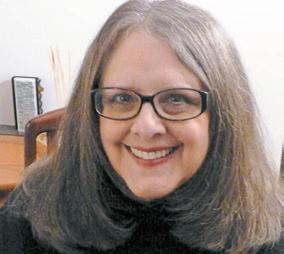
October 13, 2023 • 28 Tishrei 5784 THE JEWISH STAR 12
WINE AND DINE
Kitchen JoNI SCHoCKETT
Star columnist
Kosher
Jewish

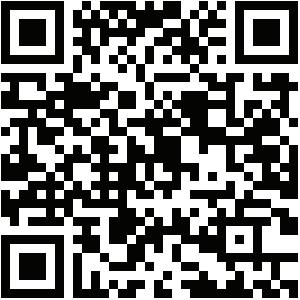
THE JEWISH STAR October 13, 2023 • 28 Tishrei 5784 13 ^ Chicken Marsala Pick up the recipe card at a Gourmet Glatt near you. JUST ANOTHER ORDINARY WEEKNIGHT? NOT IF WE CAN HELP IT. SIGN UP HERE FOR SPECIALS Shop online at GourmetGlattOnline.com gourmetglatt cedarhurst 137 Spruce Street Cedarhurst, New York T: 516-569-2662 woodmere 1030 Railroad Ave Woodmere, New York T: 516-295-6901 brooklyn 1274 39th Street Brooklyn, New York T: 718-437-3000 lakewood north 1700 Madison Avenue Lakewood, New Jersey T: 732-961-1700 lakewood south 1328 River Avenue Lakewood, New Jersey T: 732-961-1750 1233001
Harvest…
Continued from page 12
additional 15 to 25 minutes until liquid evaporates and some pieces are dark, but not burned.
Serves 8 to 12. Leftovers are great mixed with pasta or mashed as a spread.
Roasted Squash and Caramelized Onion Galette (Pareve or Dairy)
This is a great appetizer or side dish and also perfect for sukkah eating as it can be eaten hot or barely warm.
Crust:
• 2 cups unbleached flour or half white and half whole wheat flour
• 1-1/2 sticks butter or trans-fat free pareve margarine, cut into very small cubes
• 1/2 tsp. salt
• 1/2 tsp. (scant) sugar
• 1/2 cup ice water or ice cold orange juice

Filling:
• 1 lb. butternut squash, cut into half-inch cubes
• 3 Tbsp. dark brown sugar
• 4 large onions, white or red, peeled, cut in half and thinly sliced
• 2 tsp. fresh sage, finely minced
• 1 tsp. fresh parsley, finely minced
• 4 Tbsp. extra virgin olive oil
• Salt and pepper to taste
For the Dough:
Mix the flour, salt and sugar to together. Add the margarine and, with a pastry blender or two knives, cut the margarine into the flour until the mixture resembles coarse cornmeal. You can do this in a food processor with one or two pulses. Remove from the processor and place in a bowl for the next steps. Make a well and add about half of the ice water or juice. Blend with a fork until the water is evenly incorporated.
Add more liquid, one Tbsp. at a time, until the dough just holds together. Mold the dough into two discs, about 5 inches in diameter and wrap in plastic wrap. Refrigerate for at least 2 hours.
While the dough is chilling, place the squash cubes in a zipper-type bag. Add two Tbsp. of the olive oil and shake to coat. Place on a foil lined, greased rimmed cookie sheet. Sprinkle with the brown sugar, and bake at 400 degrees until forktender. Remove from the oven and set aside.
Meanwhile, heat a large skillet and add the remaining olive oil. Add the onions and sprinkle with a little salt. Heat over low heat, stirring often until the onions are caramelized and deep, golden brown, about 30 minutes. Gently toss the squash cubes with the onions Add the sage and parsley and season with salt and pepper. Set aside.
Assembly:

Remove the dough from the refrigerator and place on a generously floured table or counter. Quickly and gently roll out the dough until it is about 9 inches in diameter. Place on a parchment lined, rimmed baking dish. Repeat with the other disc.
Mound half the filling mixture in the middle of each disc, leaving about 2 inches from the edges, free of filling. Carefully lift one edge of the dough up and fold over the filling. Lift another section up and fold it over the first part, making a pleat or crimp so the dough will stay put. Continue until all the dough is “pleated” up around the filling leaving a “hole” about 5 inches in diameter in the middle that is not covered with dough. Make sure the pleats are tight so that they won’t open during baking. Repeat with the second galette.
Bake at 400 degrees until golden, about 25 to 35 minutes. Each galette serves about 4 to 6 as a side dish and 6 to 8 as an appetizer. To serve, cut into thin, pie wedge slices. (NOTE: For a dairy meal, you can sprinkle a bit of your favorite cheese over the squash halfway through baking.)
Asparagus or Broccoli
Cheese Puffs (Dairy)
I have made these for as long as I can remember.
They are delicious for adults as an appetizer and for kids as a side dish or even an afterschool snack. Kids love them.

• 1/4 to 1/3 lb. asparagus; thin stalks work best OR
• 1/4 to 1/3 lb. broccoli florets
• 3/4 cup milk, whole or 2%
• 5 Tbsp. butter, cut into pieces
• 3/4 cup unbleached flour or half whole wheat, half white
• Pinch black pepper

• 1/2 tsp. onion powder
• 3 extra-large eggs at room temperature
• 3/4 cup freshly grated Parmesan cheese
• 1/2 to 3/4 cup shredded Gruyere or Cheddar cheese
OPTIONAL: Pinch cayenne pepper, 1 clove grated garlic
Place a bowl of ice water in the sink or next to the stove. Break off the tough ends of the asparagus. Cut the spears into quarter inch pieces. Fill a sauté pan with water and add a pinch of salt. Bring to a full boil and add the asparagus. Reduce heat to a strong simmer and cook until crisp- tender, 1 to 3 minutes. Use a spider skimmer or slotted spoon and move the asparagus pieces to the ice water. Repeat with the broccoli, cutting it into very small florets.
Remove the cooled vegetables to a paper bowl lined plate or bowl to dry. Whisk the flour, black pepper, onion powder, and cayenne pepper, if using, into a small bowl. Set aside.
Preheat the oven to 400 degrees and line two cookie sheets with parchment. Lightly butter the parchment paper.
Place the milk and butter in a large saucepan and bring to a boil over medium heat. Add the grated or pressed garlic, if using. As soon as the milk boils, remove it from the heat and add the flour all at one. Stir vigorously with a wooden spoon until the mixture thickens and begins to pull away from the sides of the pan. Transfer into a large bowl or the bowl of an electric mixer.
Add the eggs, one at a time, beating well after each addition. Let cool for ten minutes, but no more than 15.
Add the well-drained asparagus or broccoli and the cheeses to the batter and mix well. Or divide the batter in half and mix half with the broccoli and half with the asparagus. Drop round teaspoonfuls onto the parchment and put both sheets into the oven at the same time. Bake until golden brown, 20 to 30 minutes. Let cool for 3 to 5 minutes and remove from the parchment to a serving dish. Serve warm. Makes about 3 dozen puffs.
Broccoli with Garlic and Capers (Pareve)
• 2 to 4 garlic cloves, oil roasted, or oven roasted
• 1/4 cup extra virgin olive oil
• 1/8 cup capers, rinsed well (more if desired)
• 1/2 tsp. red pepper flakes (more or less as desired)
• 1-1/2 lbs. broccoli, cut into bite-sized florets
• Salt and pepper, to taste
To oil roast garlic: Take a cup of garlic cloves and add to a small saucepan. Add enough canola oil to cover by about 1/2-inch. Place over medium heat and bring to a low boil. Reduce to a strong simmer and cook until the cloves turn light to medium golden. Let cool completely, drain the oil into a container and use for salad dressing. Drain the cloves on paper towels. Refrigerate until needed.
In a large serving bowl, mash the garlic with a bit of salt until you have a smooth paste. Add the oil, red pepper flakes, and capers. Set aside. Bring water to a boil in a large pot. Peel the stem end of the broccoli and cut into small bite sized pieces. Add to the water and cook, uncovered, until crisp-tender, 2 to 4 minutes. Remove with a slotted spoon, draining all the water. Add to the bowl with the garlic, oil, and capers. Toss, season with salt and pepper, cover and refrigerate overnight.
Variations: Add some sliced, roasted red peppers, black olives, or softened, diced, sun-dried tomatoes. Serves 6 to 8.
October 13, 2023 • 28 Tishrei 5784 THE JEWISH STAR 14 Call For Birthday Party Information 1232348 WINNER You Should Be Dancin’!! Monday Tuesday Wednesday Thursday 3-3:45 pm Pre Hip Hop (ages 4-5) 3:30-4:15 pm Tap/ Ballet (ages 3-5) 4:15-5 pm Ballet (ages 5-7) 4:15-5 pm Lyrical (ages 5-7) 4:15-5 pm Pre Hip Hop (ages 5-6) 4:15- 5 pm Lyrical (ages 6-8) 4:15-5pm Lyrical (ages 8-11) 4:15-5 pm Hip Hop (ages 8-10) 5-5:45 pm Hip Hop (ages 6-8) 5-5:45 pm Hip Hop (ages 6-8) 5-5:45 pm Ballet (ages 8-11) 5:45-6:30 pm Hip Hop (ages 10-12) 5:45-6:30 pm Musical Theatre (ages 10-12) 6:30-7:15 pm Hip Hop (Teens) 5-5:45 pm Tap (ages 8-11) Friday 1:15-2 pm Hip Hop (ages 7-10) 1032 Broadway, Woodmere, ny 11598 (516) 295-2800 • email: Misstricia1@hotmail.com Hart & Soul Dance and Performing Arts Woodmere @hartandsouldancestudio ONLY A FEW SPOTS LEFT… See Available Classes Below






























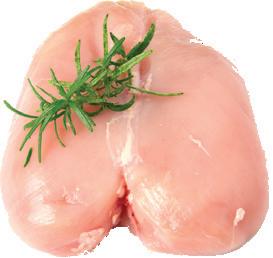

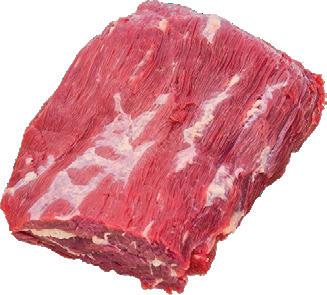



























THE JEWISH STAR October 13, 2023 • 28 Tishrei 5784 15 Keilim Mikveh on Premises | Pre-Shabbos Buffet Every Thursday & Friday! Savings Plaza | 11 Lawrence Lane, Lawrence, NY | (516) 371-6200 | info@kolsavemarket.com | /kolsavemarket Hours: Sunday-Tuesday: 7am-8pm | Wednesday: 7am-10pm | Thursday: 7am-11pm | Friday: 7am-2 hours before Shabbos TM Best everyday pricing in all of Brooklyn, Queens & Long Island! NEW PRODUCTS EVERY DAY! ( Free Parking Over 150 Spaces! We reserve the right to limit quan��es. No rain checks. Not responsible for typographical errors. More for Less much Prices Good Sunday, October 15th through Friday, October 20th 2023 Avenue A Flour All Purpose or Unbleached 199 5 LB Yo Crunch Yogurt Assorted 89¢ 6 oz Pint Strawberries $299 EA Jumbo Red Peppers $149 LB Grape Tomatoes 2/$4 Hoffman’s Pizza Balls or Snaps $699 18 oz/20 oz Duncan Hines Classic Yellow Cake or Brownie Mixes $149 15 oz/18 oz Dagim Breaded Flounder Fillets $599 14 oz Haddar Animal Crackers $149 12 oz Bowl & Basket Spring Water 24 Pack 3/$10 Mango Cheeks 999LB Roasted Almonds $549LB Baked Zi� Container $999 Gefen Chicken Cup-a-Soup 12 Pack 1099 General Mills Cereals Cheerios Oat Crunch, Cinnamon Toast Crunch, Reese’s Puffs $399 16.7 oz/18.2 oz Snack Factory Pretzels 2/$5 7.33 oz Tree Ripe Grove Select Orange Juice $249 59 oz Taster’s Choice House Blend Coffee $1199 14 oz Tilapia Family Pack $799 LB Fish S�cks $629 LB Pastrami Top of the Rib $899 LB Chicken Cutlets Untrimmed $649 LB Beef Deckle $849 LB Corned Beef Deckle $849 LB Streit’s Whole Wheat Matzo Regular, Salted or Everything $299 11 oz Wacky Mac Mac & Cheese 5/$5 5.5 oz Terra Vegetable Chips $249 5 oz Low Fat Vegetable Tuna $1399 LB Ha’olam String Cheese 18 Pack $899 Be�y Crocker Gushers or Fruit-by-the Foot $299 4.5 oz/5 oz Eggo Family Pack Waffles Assorted $599 25 oz/29 oz Bowl & Basket Old Fashioned or Quick Cooking Oats $399 42 oz
Israel’s role in international health diplomacy
By Ofir Koren and Hillel Newman, JNS
Israel and Morocco are promoting a declaration on “Pandemic Prevention, Preparedness and Response” which is an excellent example of “health diplomacy.”
Health diplomacy is a field that merges international relations with healthcare endeavors, with roots traced back to the mid-19th century.
Health and medical challenges transcend borders and nationalities. Thus, there is a growing understanding that health issues must be addressed on a regional if not global level.
The COVID-19 pandemic underscored the urgency of international cooperation in this field. A notable example was the international effort to ensure equitable access to vaccines. The pandemic was a poignant reminder that diplomacy is
not only a tool of international relations — it can save lives and shape the future of global health.
Today, Israel is emerging as a global leader in health diplomacy. This is inextricably linked to Israel’s tech industry, of which the health tech sector is an integral part. As documented by Start Up Nation Central, healthcare is currently the largest sector of the Israeli startup ecosystem. It represents 1,600 — around 20 percent — of all technology companies, over 70 innovation hubs, dozens of R&D centers for multinational corporations and global tech companies, and more than 250 active VCs.
In recent years, Israeli diplomats have cooperated with Israeli and American physicians in the field of health diplomacy in Los Angeles, with extraordinary results. Agreements were signed
and understandings reached between medical institutions in Israel and Los Angeles in the fields of R&D, collaborative medical innovation and exchanges of medical teams and students.
The institutions involved collaborate on issues like next generation transcatheter heart valves that help make open-heart surgery unnecessary, delivering less-invasive treatments of cardiac and non-cardiac diseases, identifying the causes behind the decrease in female infertility, providing preventive solutions for acute medical challenges and more.
The Israel-LA health diplomacy initiative will also help address critical disparities in Israeli healthcare services; for example, between medical services in the center of Israel and Israel’s periphery. As of 2022, the number of physicians
in Israel’s periphery was about 10 percent below the OECD average, yet the demand for medical care has increased and will continue to do so.
There are several reasons for this. In particular, small and medium-sized hospitals struggle to attract residents and researchers due to limited access to advanced procedures, data-driven research and cutting-edge technology. This perpetuates a cycle in which the most talented physicians seek training and employment in major hospitals, exacerbating the critical care gap.
The Israel-LA initiative stands out not only for the fruitful exchange of students and medical professionals but also its broader implications beyond medicine and academia. It builds ties and thus helps decrease anti-Zionism and antisemitism.
Parker ranked an ‘America’s Best Nursing Home’
Parker Jewish Institute for Health Care and Rehabilitation in New Hyde Park has been recognized by the Newsweek’s America’s Best Nursing Home 2024 list. The award is presented by Newsweek and Statista Inc, a statistics portal and industry-ranking provider.
The list comprises the nation’s leading skilled nursing facilities in those 25 states that have the highest number of facilities according to the US Centers for Medicare & Medicaid Services (CMS).
This comprehensive evaluation is based on these five data sources:
•CMS Data: Used to determine the performance of nursing homes.

•Accreditation: Data on nursing homes provided by The Joint Commission (TJC) and Commission on Accreditation of Rehabilitation Facilities (CARF).

•Resident Satisfaction Data: National Patient Safety Goals from the Joint Commission and Google reviews were included.

•National Online Survey: Thousands of medical professionals (registered nurses, nursing home managers and administrators, licensed practical
nurses / licensed vocational nurses, nursing assistants, therapists, and physicians) were surveyed.
•Management of the Covid-19 situation: A Covid-19 score for each facility was calculated, with the objective to award nursing homes which have had the best possible response and protocols during the pandemic.
“The 2024 list highlight the dedication of Parker Jewish Institute’s talented health care team members,” said Parker President and CEO Michael N. Rosenblut. “I am proud to share this honor with our entire team.”
Parker is a leading provider of short term rehabilitation and long term care. At the forefront of innovation in patient-centered health care and technology, the Institute is a leader in teaching and geriatric research. Statista publishes hundreds of worldwide industry rankings and company listings with high profile media partners. This research and analysis service is based on the success of statista.com, the leading data and business intelligence portal that provides statistics, business relevant data, and various market and consumer studies and surveys. —Parker Jewish
HEALTH, MIND & BODY October 13, 2023 • 28 Tishrei 5784 THE JEWISH STAR 16 New Patie N t S P ecial! New Patients Only. One Time Offer with coupon. Exp. 11/09/23 OPEN SUNDAYS • Friendly Doctors & Staff who listen to your concerns and clearly explain your treatment options. Healthy Teeth & Gums From Knowledgeable, Caring Dentists With Exceptional Skills And A Gentle Touch Bergan Dental Care 513 Chestnut Street, Cedarhurst NY 11516 Call For Your Appointment Now! 516-203-4556 www.alinabergandds.com Request Your Appointment Online Only $ 335 Reg. $500 In-Off I ce TeeT h Wh IT en I ng Exp. 11/09/23 SP ecial ! Adult CleAning*, e x Am, And x-r Ays *In absence of gum disease. Only $ 99 Reg. $200 Child CleAning*, ex Am, x-r Ays And Fluoride *Children up to 12 years old. Only $ 75 Reg. $150 1232941 • We see children starting at 2 years old. • Emergency appointments available.
DON’T MISS YOUR CHANCE TO WIN TONS OF PRIZES*

RAFFLE DRAWING 12:30PM
SILVER SPONSORS: VENUE :













THE JEWISH STAR October 13, 2023 • 28 Tishrei 5784 17 COME TO THE FREE OCTOBER 16 • 2023 10:00AM - 12:30PM The Mansion at Glen Cove 200 Dosoris Ln, Glen Cove NY 11542 FREE Health Screenings FREE Refreshments FREE Panel Discussion FREE Yoga Stretches FREE Parking FREE Goody Bags * TO SPONSOR OR EXHIBIT Contact at aamato@liherald.com or 516.569.4000 x245 TO RSVP Contact Amanda Marte at amarte@liherald.com or 516.569.4000 x219 Register at richnerlive.com/seniorexpo or call 516.569.4000 x219 *limited supplies available *must be present at drawing to win EVENT AGENDA: VISIT EXHIBITORS 10AM-11:30AM
5 Minute Yoga Stretch PANEL DISCUSSION + Q&A 11:35AM - 12:25PM 5 Minute Yoga Stretch
1232345
jewish star torah columnists:
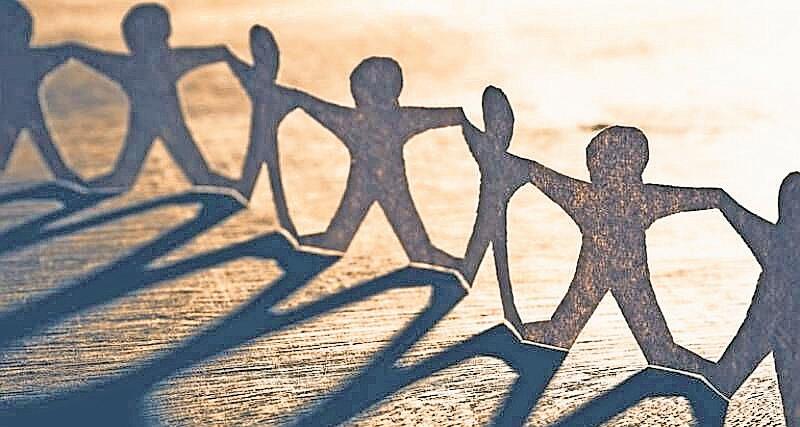
•Rabbi Avi Billet of Anshei Chesed, Boynton Beach, FL, mohel and Five Towns native •Rabbi David Etengoff of Magen David Yeshivah, Brooklyn
•Rabbi Binny Freedman, rosh yeshiva of Orayta, Jerusalem
contributing writers:
•Rabbi Sir Jonathan Sacks zt”l,
former chief rabbi of United Hebrew Congregations of the British Commonwealth •Rabbi Dr. Tzvi Hersh
Weinreb, OU executive VP emeritus
•Rabbi Raymond Apple, emeritus rabbi, Great Synagogue of Sydney
•Rabbi Yossy Goldman, life rabbi emeritus, Sydenham Shul, Johannesburg and president of the South African Rabbinical Association.
contact our columnists at: Publisher@TheJewishStar.com
Five towns candlelighting: From the White Shul, Far Rockaway, NY
תבש לש בכוכ
Fri Oct 13 / 28 Tishrei
Bereshis • Shabbos Mevarchim
Candles: 6:00 • Havdalah: 7:07
Fri Oct 20 / 5 Cheshvan
Noach
Candles: 5:49 • Havdalah: 6:57
Fri Oct 27 / 12 Cheshvan
Lech Lecha
Candles: 5:40 • Havdalah: 6:47
Fri Nov 3 / 19 Cheshvan
Vayera
Candles: 5:31 • Havdalah: 6:39
Fri Nov 10 / 26 Cheshvan
Chayei Sara • Shabbos Mevarchim
Candles: 4:23 • Havdalah: 5:31
Fri Nov 17 / 4 Kislev
Toldos
Candles: 4:17 • Havdalah: 5:26
G-d’s empathy to the lonely is the genesis of love
rabbi sir
jonathan sacks
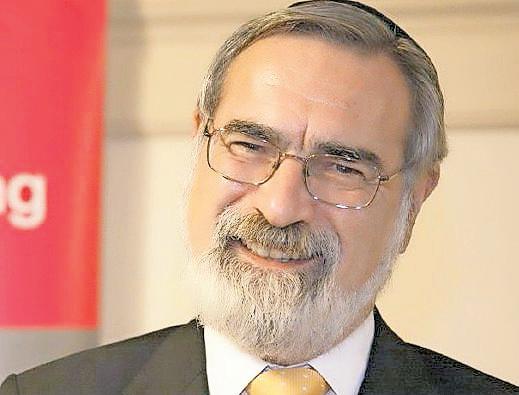
In “The Lonely Man of Faith,” Rabbi Soloveitchik drew our attention to the fact that Bereishit contains two separate accounts of creation. The first is in Genesis 1, the second in Genesis 2-3, and they are significantly different.
In the first, G-d is called Elokim, in the second, Hashem Elokim.
In the first, man and woman are created simultaneously — “male and female He created them.” In the second, they are created sequentially — first man, then woman.
In the first, humans are commanded to “fill the earth and subdue it.” In the second, the first human is placed in the garden “to serve it and preserve it.”
In the first, humans are described as “in the image and likeness” of G-d. In the second, man is created from “the dust of the earth.”
The explanation, says Rabbi Soloveitchik, is that the Torah is describing two aspects of our humanity that he calls respectively, “Majestic man” and “Covenantal man.” We are majestic masters of creation; that is the message of Genesis 1. But we also experience existential loneliness, we seek covenant and connection; that is the message of Genesis 2.
There is, though, another strange duality, a story told in two different ways, that has to do not with creation but with human relationships. There are two different accounts of the way the first man gives a name to the first woman.
This is the first: “This time — bone of my bones and flesh of my flesh; she shall be called ‘woman’ [ishah] for she was taken from man [ish].”
And this, many verses later, is the second: “And
the man called his wife Eve [Chavah] because she was the mother of all life.”
The differences between these two accounts are highly consequential. In the first, the man names, not a person, but a class, a category. He uses not a name but a noun. The other person is, for him, simply “woman,” a type, not an individual. In the second, he gives his wife a proper name. She has become, for him, a person in her own right.
In the first, he emphasizes their similarities — she is “bone of my bones, and flesh of my flesh.” In the second, he emphasizes the difference. She can give birth, he cannot. We can hear this in the very sound of the names. Ish and Ishah sound similar because they are similar. Adam and Chavah do not sound similar at all.
In the first, it is the woman who is portrayed as dependent — “she was taken from man.” In the second, it is the other way around. Adam, from Adamah, represents mortality — “By the sweat of your brow you will eat your food until you return to the ground [ha-adamah] since from it you were taken.” It is Chavah who redeems man from mortality by bringing new life into the world.
The consequences of the two acts of naming are completely different. After the first comes the sin of eating the forbidden fruit, and the punishment (exile from Eden). After the second, however, we read that G-d made for the couple, “garments of skin” (“or” is spelled here with the letter ayin), and clothed them. This is a gesture of protection and love. In the school of Rabbi Meir, they read this phrase as “garments of light” (“or” with an aleph). G-d robed them with radiance.
Only after the man has given his wife a proper name do we find the Torah referring to G-d Himself by His proper name alone, namely Hashem (in Genesis 4). Until then He has been described as either Elokim or Hashem Elokim, Elokim being the impersonal aspect of G-d (G-d as law, G-d as power, G-d as justice). In other words, our relationship to G-d parallels our relationship to one another. Only when we respect and recognize the uniqueness of another person are we capable of respecting and recognizing the uniqueness of G-d Himself.
Now let us return to the two creation accounts, this time not looking at what they tell us about humanity (as in Soloveitchik’s “The Lonely Man of Faith”), but simply at what they tell us about creation.
In Genesis 1, G-d creates things — chemical elements, stars, planets, lifeforms, biological species. In Genesis 2-3, He creates people. In the first chapter, He creates systems, in the second chapter He creates relationships. It is fundamental to the Torah’s view of reality that these things belong to different worlds, distinct narratives, separate stories, alternative ways of seeing reality.
There are differences in tone as well. In the first, creation involves no effort on the part of G-d. He simply speaks. He says “Let there be,” and there was. In the second, He is actively engaged.
When it comes to the creation of the first hu-
man, He does not merely say, “Let us make Man in our image according to our likeness.” He performs the creation Himself, like sculptor fashioning an image out of clay: “Then the L-rd G-d formed the man from the dust of the ground and breathed into his nostrils the breath of life, and the man became a living being.”
In Genesis 1, G-d effortlessly summons the universe into being. In Genesis 2, He becomes a gardener: “Now the L-rd G-d planted a garden…” We wonder why on earth G-d, who has just created the entire universe, should become a gardener. The Torah gives us the answer, and it is very moving: “The L-rd G-d took the man and put him in the Garden of Eden to work it and take care of it.”
G-d wanted to give man the dignity of work, of being a creator, not just a creation. And in case the man should view such labor as undignified, G-d became a gardener Himself to show that this work too is Divine, and in performing it, man becomes G-d’s partner in the work of creation.
Then comes the extraordinarily poignant verse, “The L-rd G-d said, ‘It is not good for the man to be alone. I will make a helper suitable for him’.” G-d feels for the existential isolation of the first man. There was no such moment in the previous chapter. There, G-d simply creates.
Here, G-d empathizes. He enters into the human mind. He feels what we feel. There is no such moment in any other ancient religious literature.
What is radical about biblical monotheism is not just that there is only one G-d, not just that He is the source of all that exists, but that G-d is closer to us than we are to ourselves. G-d knew the loneliness of the first man before the first man knew it of himself.
That is what the second creation account is telling us. Creation of things is relatively easy, creation of relationships is hard.
Look at the tender concern G-d shows for the first human beings in Genesis 2-3. He wants man to have the dignity of work. He wants man to know that work itself is Divine. He gives man the capacity to name the animals. He cares when He
senses the onset of loneliness. He creates the first woman. He watches, in exasperation, as the first human couple commit this first sin.
Finally, when the man gives his wife a proper name, recognizing for the first time that she is different from him and that she can do something he will never do, He clothes them both so that they will not go naked into the world. That is the G-d, not of creation (Elokim) but of love (Hashem).
That is what makes the dual account of the naming of the first woman so significant a parallel to the dual account of G-d’s creation of the universe. We have to create relationships before we encounter the G-d of relationship. We have to make space for the otherness of the human other to be able to make space for the otherness of the Divine other. We have to give love before we can receive love.
In Genesis 1, G-d creates the universe. Nothing vaster can be imagined, and we keep discovering that the universe is bigger than we thought. In 2016, a study based on three-dimensional modelling of images produced by the Hubble space telescope concluded that there were between 10 and 20 times as many galaxies as astronomers had previously thought. There are more than a hundred stars for every grain of sand on earth.
And yet, almost in the same breath as it speaks of the panoply of creation, the Torah tells us that G-d took time to breathe the breath of life into the first human, give him dignified work, enter his loneliness, make him a wife, and robe them both with garments of light when the time came for them to leave Eden and make their way in the world.
The Torah is telling us something very powerful. Never think of people as things. Never think of people as types — they are individuals. Never be content with creating systems — care also about relationships.
I believe that relationships are where our humanity is born and grows, flowers and flourishes. It is by loving people that we learn to love G-d and feel the fullness of His love for us.
October 13, 2023 • 28 Tishrei 5784 THE JEWISH STAR 18
zt”l
Our relationship to G-d parallels our relationship to one another. Only when we respect and recognize the uniqueness of another person are we capable of respecting and recognizing the uniqueness of G-d Himself.
Let’s consider Bereshis: Is ignorance bliss?
Rabbi DR. tzvi heRsh weinReb
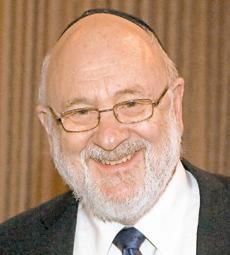
Orthodox
Union
There was a time not too long ago when the three words, “ignorance is bliss,” would engender a long discussion. There would have been speculation about the origin of the statement. Nowadays, however, someone is sure to rush to Google and find out that the author was the 18th-century poet Thomas Gray who, in his poem “Ode on a Distant Prospect of Eton College,” wrote: “Where ignorance is bliss, ’tis folly to be wise.”
An alternative topic for discussion, one which cannot easily be resolved by Google, is the question of whether such a statement is consistent with the philosophy of Judaism. Surely, one would think, Judaism values knowledge and looks down upon those who are ignorant, and certainly those who are deliberately so. Yet it is not so simple.
This week’s Torah portion, the first of the New Year and the beginning of the entire Bible, is Bereshis (Genesis 1:1-6:8). A multitude of topics are dealt with, ranging from the origins of the natural world to sinful temptation.
There is also material to help us reflect upon the nature of wisdom: “The L-rd G-d planted a garden in Eden … and placed there the man whom He had formed. … [He] caused to grow every tree that was pleasing to the sight and good for food, with the tree of life in the middle of the garden, and the tree of knowledge of good and bad” (Genesis 2:8-9).
Certainly the trees with nutritious and delicious fruit were planted by the Almighty for the benefit of mankind. But what about the tree of life? What about the tree of knowledge?
Until we read further, we have every reason to believe that they too were placed in the garden for mankind to enjoy. After all, mankind needs life, and one would assume that it needs knowledge as well.
A few verses later, however, we learn otherwise: “And the L-rd G-d commanded the man, saying, ‘of every tree of the garden you are free to eat; but as for the tree of knowledge of good and bad, you must not eat of it, for as soon as you eat of it, you shall die’” (Genesis 2:16-17).
Why would the L-rd prohibit the consumption of the fruit that would grant man knowledge of good and bad? Would it not be to mankind’s advantage to know all that he possibly could about right and wrong? Was the Almighty somehow convinced that “ignorance is bliss”?
To sharpen these questions further, we must revert to a biblical text which we read in the synagogue just last Shabbat. I am not referring to the Torah portion of Sukkot, but to the astonishing Book of Kohelet, otherwise referred to as Ecclesiastes. The author of Kohelet, no less a wise man than King Solomon himself, urges us to contemplate the disadvantages of wisdom.
what? It is worthwhile to experience heartache if it leads to a bit more wisdom!”
To drive home his point about the futility of pursuing of wisdom, King Solomon writes: “I came to the conclusion that that (pursuit of wisdom) too was futile, because the wise man, just like the fool, is not remembered forever… both are forgotten. Alas, the wise man dies, just like the fool” (Kohelet 2:15-16).
With such verses echoing in our ears, it is not surprising that G-d forbids the first man from indulging in the tree of knowledge.
“I set my mind to appraise wisdom … and I learned that this too was pursuit of wind: for as wisdom grows, vexation grows; to increase learning is to increase heartache” (Kohelet 1: 16-18). These words seem consistent with the philosophy of “ignorance is bliss.”
If increased learning leads inevitably to increased heartache, we can understand why the Almighty would strongly advise man to refrain from eating the fruits of the tree of knowledge. Few of us would choose to emulate the legendary Rabbi Mendel of Kotzk, who famously declared: “Wisdom leads to heartache, but so
But as we study this week’s Torah portion more deeply, and sample some of the commentaries of our great rabbis, we realize that it was not every type of knowledge that was associated with the Tree, but just a certain type, as Nachmanides explains.
Nachmanides insists that the knowledge in our text is best translated not as “knowledge of good or bad” but as “knowledge that one can choose between good and bad.” It is the ability to will something other than the will of the Almighty.
Nachmanides asserts that when man was originally created, his will was entirely consistent with that of his Creator. The very notion of contravening the divine will was alien to him. Consumption of the fruit exposed him to the
See Weinreb on page 24
Three ingredients to a successful Jewish life
There is a wonderful example in the parsha of downturn in commitment, and how, with proper preparation, people can stay committed and even grow.
good versus evil), she seemed to suggest that the tree was dangerous or poisonous, and therefore forbidden to touch.
Jewish people who have traversed the Orthodox experience may have followed any number of paths. The most common are those who were born into Orthodoxy and never left, those who converted or became inspired to commit to an Orthodox lifestyle and have only strengthened their commitment over time, those who left Orthodoxy (whether Hasidic, which garners the most media attention, or anywhere else along the spectrum), or those whose spiritual awakening waned over time.
One rule was given to the original human occupants of the Garden of Eden: “G-d commanded the human saying, ‘You will eat of all the trees of the garden. And you will not eat from the Tree of Knowledge of Good and Evil, for on the day you eat from it, you will become mortal’.” (I translate “will become mortal” because after eating from the tree, Adam lives close to 1,000 years.)
In summary, the whole garden is accessible, except for one specific, named tree.
And yet, when the serpent approaches Chava after goading her about the forbidden tree, she responds, “We may eat of the fruits of the garden. However, of the fruit tree in the garden, G-d ‘don’t eat from it and don’t touch it, lest you die’.”
This is clearly not an accurate reflection of what Adam had been told; Chava changes a few important details.
One: She implies that they may only eat from some of the trees.
Two: When she mentions that G-d “said” not to eat, she opened the door to the idea that eating from the tree isn’t a big deal, as merely “saying” something isn’t binding (G-d had actually commanded).
Three: In not mentioning the reason for the prohibition (loss of innocence, and the depth of
Defining reasons for commandments is risky. Once the reason becomes irrelevant, you’re one step away from declaring a commandment irrelevant. The only reason for every mitzvah is that G-d has commanded it. But the real take-home lesson comes from Chava, who became a superfrummy about the tree rules in her very short lifespan before eating from it.
Had Chava said to the snake, “I can eat from every tree. I can’t eat from one tree. Big deal, I don’t need it anyway. I don’t care for what you say I’m missing,” the history of the world might look very, very different.
Instead, she started making yeshiva-style analogies. I can’t eat this one, but maybe G-d didn’t just mean this one … He meant the trees around it. So if I can’t eat, I won’t even touch it! How quickly did she go from seeing that she could touch it to eating it? About five seconds, thanks to the serpent.
From taking on too much, to losing everything. How do we get off the roller coaster?
I think there are three components to the solution.
The first is KNOWLEDGE
People drawn to a life of Judaism, frumkeit, people who are sold on the idea that a Torah life is the only authentic life, cannot stop there. Go-
ing through motions without knowledge — or when that inspirational figure is no longer nearby — can get stale quickly. And not having the knowledge to back up the life choices makes for too many challenges when questions come along.
I know a man who is heavily involved in learning — he studies, he gives classes, some of his kids went through the Aish system and are involved in kiruv. He became inspired in his twenties and defines himself as a baal teshuvah Once, I gave a talk in which I presented this question to the crowd: “How long are you going to rely on your baal teshuvah-ness to justify where you are in your Jewish life?”
He said to me afterwards, “You know, I haven’t thought about it. But I’ve been calling myself a baal teshuvah for 40 years. I have to stop making excuses.”
The second ingredient is MODERATION
It is never a good idea to jump into a new way of life without proper preparation. Some people quit smoking cold turkey, and that is amazing. But most people who go through significant lifestyle changes know that baby steps of adjustment are much easier to maintain.
While there are many Jews who came to observance through the baal teshuvah movement or through conversion whose dedication and commitment are the envy of us all, there are also some who became baalei teshuvah or converted,
See Billet on page 24
Viewing Genesis through a new literary lens
Kosher bookworm
alan Jay GeRbeR
 Jewish Star columnist
Jewish Star columnist
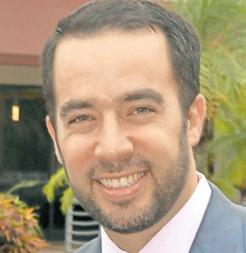
One of our nation’s oldest Jewish publishers, Urim Publishing, brought to the Jewish reading public a fascinating literary work, “Six Days of Cosmology and Evolution: A Scientific Commentary on the Genesis Text With Rabbinic Sources” by Daniel Langer. With the upcoming Torah readings from the book of Genesis, this timely contribution is a unique literary experience tailored to both our religious and intellectual needs.
The method employed by the author utilizes a verse-byverse analysis of the Genesis narrative of the story of the world’s creation through the use of both scientific and rabbinic “lenses.”
In his introduction, the author details for us his goals in what in previous generations has proven to be a daunting literary experience:
“The aim of this book is to demonstrate that the Torah’s account of Creation is not in conflict
with the sciences of cosmology, geology, or evolution. This requires an understanding of the nature of time, the overlapping character of the six days, and the use of homonyms in the Bible.”
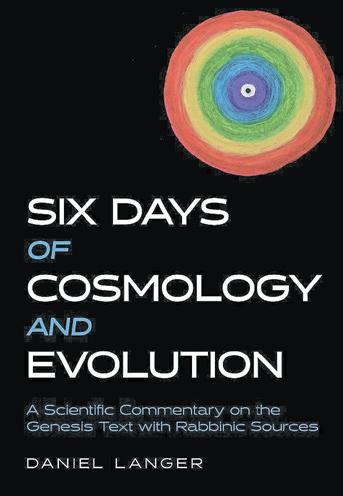
Further on, he details the following candid sentiments:
“This approach will be criticized from the left and from the right. Fundamentalists who hold a literal reading of Scripture may object to the suggestion that words in the Torah can mean different things to different generations, or that passages can be reinterpreted in ways that conform to empirical data and scientific theory. Scholars on the left hold that the Torah is not a science text: treating it as such distorts its message.”
The author concludes his introduction with the following teaching from the great scholar
Rabbi Elie Munk, zt”l, in his classical commentary, “The Call of the Torah,” where he teaches the following:
“The Torah does not stipulate as an absolute act of faith that G-d exists. Indeed, the existence of G-d is presupposed throughout, but it is not the object of a proof, nor even of a doubt. But the word order in the initial verse of the Torah [The word ‘Gd’ appears after ‘created’] discreetly suggests that we seek out G-d in Creation, and so progressively acquire with our intelligence that which faith puts forward to us at the beginning of our human experience. For faith is crowned by knowledge.”
Selecting this timely publication, as we begin the reading of Sefer Bereishis, would be a very fortunate religious literary decision. Originally published in 2018.
THE JEWISH STAR October 13, 2023 • 28 Tishrei 5784 19
Parsha of the week
Rabbi avi billet Jewish Star columnist
With knowledge, moderation, and consistency, we can set ourselves on a trajectory of constant growth.
Not every type of knowledge was associated with the Tree.
NY’s Trusted Jewish Newspaper. Honest Reporting. Torah-True. Kosher and Fat-Free.
5676 Riverdale Ave Suite 311, Bronx NY 10471
Jewish Star Associate: Nechama Bluth, 516-622-7461 ext 241.
Content: The Publisher endeavors to ensure that this newspaper’s content is within the bounds of normative halachah and hashkafah. Any reader who feels anything we publish may be inappropriate in this regard is urged to bring the item in question to the attention of the Publisher.
Advertising is accepted at the sole discretion of the Publisher. The Publisher expects all advertising to conform to standards of content appropriate for distribution in an Orthodox community.
Send us your news!
News@TheJewishStar.com
For information about advertising!
Publisher@TheJewishStar.com
Kashrut: The Jewish Star is not responsible for the kashrut of any product or establishment featured in its pages. If you have questions regarding any establishment or product, including its supervision, please consult your rabbi for guidance.
Submissions: All submissions become the property of The Jewish Star and may be edited and used by the Publisher, its licensees and affiliates, in print, on the web and/or in any media that now exists or will exist in the future in any form, including derivative works, throughout the world in perpetuity, without additional authorization or compensation. The individual or entity submitting material affirms that it holds the copyright or otherwise has the right to authorize its use in accordance with The Jewish Star’s terms for submissions.
Opinions: Views expressed by columnists and other writers do not necessarily reflect the position of the Publisher or of The Jewish Star LLC.
Distribution: The Jewish Star is available free in kosher food establishments, stores, synagogues, and curb-side newsboxes on Long Island, in New York City and elsewhere. To request free delivery to your location, write Publisher@TheJewishStar.com.
Subscriptions: By first class mail in the continental United States, $170 for one year or $85 for six months, prepaid. Rate subject to change.
Copyright: All content is copyright and may not be republished or otherwise reproduced without written permission by The Jewish Star LLC; to do so without permission is against the law and against halacha. To inquire about content reproduction write to Publisher@TheJewishStar.com. The Jewish Star subscribes to the JNS news service. It, or its contributors, own the copyrights on material attributed to them. The length and content of JNS material and all other submitted material may be edited by The Jewish Star.
Columnists: Henry M. Abramson, Dean at Touro College in Brooklyn; Jerold S. Auerbach, author (“Print to Fit: The New York Times, Zionism and Israel”); Edwin Black, author (“IBM and the Holocaust”); Ruthie Blum, Israeli journalist; Ben Cohen, NY-based journalist; Richard L. Cravatts, Freedom Center Journalism Fellow in Academic Free Speech; Nave Dromi, director Middle East Forum; Stephen M. Flatow, VP Religious Zionists of America whose daughter was murdered in an Iranian-sponsored Palestinian terrorist attack; Caroline Glick, Israel Hayom columnist; Daniel Greenfield, Shillman fellow at the Freedom Center; Ricki Hollander, CAMERA senior analyst; Gilead Ini, CAMERA senior analyst;
Lyn Julius, author (“Uprooted: How 3,000 years of Jewish Civilization in the Arab World Vanished Overnight”); Benjamin Kerstein,writer and editor in Tel Aviv; Yechiel Leiter, DirectorGeneral, Jerusalem Center for Public Affairs; Eric R. Mandel, director MEPIN. Clifford D. May, founder and president, Foundation for Defense of Democracies; Rafael Medoff, director David S. Wyman Institute for Holocaust Studies; Fiamma Nirenstein, fellow at Jerusalem Center for Public Affairs; Melanie Phililps, British journalist; Thane Rosenbaum Distinguished University Professor at Touro University; Victor Rosenthal, Israeli contributor to White Rose Magazine; Nadav Steinman, chair, International Legal Forum; Sarah N. Stern, founder and president, Endowment for Middle East Truth (EMET); Paul Schneider, American Jewish International Relations Institute board member; David Suissa, editor, Jewish Journal; Jonathan S. Tobin, editor-in-chief of JNS; Gil Troy, author of “Theodor Herzl: Zionist Writings.”
To contact our columnists, write: Publisher@TheJewishStar.com
Member American Jewish Press Association. This newspaper contains words of Torah; please dispose of properly.
Future’s grim as US Jewry stands on a cliff
was total.
In the days since Hamas launched its barbaric assault on Israel, there has been a lot of discussion about possible analogies between the current struggle and past chapters of Israeli history. The comparison with the 1973 Yom Kippur War with its heavy casualty toll and a surprise attack on a Jewish holiday is obvious. Some have raised the precedent of the 1948 War of Independence in which the country as a whole was under assault by multiple invading Arab armies and Palestinian Arab militias with a high number of civilian as well as military casualties suffered by the Jews.
But in both cases, the differences outnumber the similarities. In 1948, Israel’s existence and the possibility of total military defeat were present in a way that — for all of the horror of the Hamas atrocities — is not a possibility today.
In 1973, the full force of the Egyptian and Syrian militaries was matched and then beaten by that of the Israel Defense Forces, creating battles on a larger scale than those of 2023. Moreover, as much as the attack on the holiest of Jewish days shocked the Israeli people, the government still had the option of striking first in the hours before the assault but refrained because of worries about American disapproval. On Simchat Torah 2023, the surprise achieved by Israel’s enemies
The community that rallied behind the Jewish state in 1967 and 1973 no longer exists. Can once formidable Jewish groups provide wartime leadership?
There is one other element that is completely different today from those conflicts and from the 1967 Six-Day War, when Israel seized the initiative and struck first before its foes could attack its borders. That is the belief that Israel could count on the passionate support of the overwhelming majority of American Jews.
Israel could count on a unified response.

In each of those conflicts, but especially in 1967 and 1973, the response from the organized Jewish world as well as the grassroots was loud, heartfelt, and more importantly, politically effective.
The mass gatherings held in support of Israel throughout the United States were attended by huge numbers of ordinary American Jews, and the massive fundraising for Israel during all three of those conflicts was on a scale that not only reflected the relative wealth of the community but also made a genuine difference for the Jewish state. Just as important, the strength of the communal response had an impact on American policy.
The fundraising slogan, “We are one,” was always more aspirational than descriptive. But at the height of those crises, the atmosphere in American synagogues, community centers and other organizational venues was at such a fever pitch of anxiety and a readiness for activism that it was easy to forget that prior to the Holocaust, many, if not most, American Jews had been decidedly cool towards the Zionist case.
If for decades after the last of those trials many non-Jewish politicians were still under the misapprehension that Jewish votes could be won or lost solely on the basis of a stand on Israel (a lesson that former President Donald Trump still has trouble accepting), it was in large measure because the communal response to those crises was so strong.

If there is anything that is a given about the debate about the current war, it is that the response from American Jewry is not going to be anything remotely like the outpouring of activism and donations during those conflicts.
In some ways, it doesn’t make sense.
Revulsion for Hamas should be universal.
The atrocities committed in the last few days and the toll of those murdered, injured, raped and kidnapped far exceed even the terrible price in human life that Israel paid during the 1948,
1967 and 1973 wars. Indeed, what happened on Oct. 7 should shake every American to the core.
Moreover, in the age of cell-phone cameras and social-media platforms, graphic shocking evidence of these unbelievable crimes — much of which was posted by the Palestinians themselves — is now easily accessed in ways that were unimaginable in the past. Outrage over the callous cruelty of a people that mainstream media outlets are still calling “militants” or “fighters” rather than terrorist murderers ought to be even greater than the worries that American Jews had in the past about Arab armies carrying out a second Holocaust.
In an era where sensibilities are so delicate that “trigger warnings” are required for even the mildest of controversial material, one would think that the gruesome images flooding social media would be enough to fuel a massive surge of public outrage.
Jews turned out in impressive numbers to rallies during the wars fought 50 and 75 years ago without seeing pictorial and video evidence of
the barbarism of those dedicated to eliminating Israel. Will they do as well now?
It’s highly unlikely.
Some of the reasons for this are due to history and demography, and have little or nothing to do with politics.
In 1973 and 1967 — let alone in 1948 — the Holocaust was a fresh memory for Jewish adults. Moreover, most Jews alive then remembered what it was like to grow up in a world without a Jewish state. They instinctively knew that such a world was inherently more dangerous for Jews wherever they lived. Contrary to Zionist founding father Theodor Herzl’s expectations, the triumph of Zionism didn’t put an end to antisemitism; instead, it gave the virus of Jew-hatred a new target.
Nevertheless, Israel’s creation still changed the lives of every Jew, Zionist or non-Zionist, religious or non-religious, allowing all to hold up their heads higher, helping in no small measure to create the self-confident and influential Jew-
October 13, 2023 • 28 Tishrei 5784 THE JEWISH STAR 20
Published weekly except during
•
Blvd,
Ed Weintrob,
• EWeintrob@TheJewishStar.com •
certain religious and civil holidays by The Jewish Star LLC New York City office:
LI office: 2 Endo
Garden City NY 11530 TheJewishStar.com
Editor and Publisher
516-622-7461 ext 291
Tobin on page 22
House on fire: Israeli security forces at the scene where a rocket fired from the Gaza Strip hit a shelter in the southern Israeli city of Sderot on Oct. 9. With Israel at war, explains Jonathan Tobin, the Jewish consciousness of today’s American Jews is on trial. Yossi Zamir, Flash90
JONATHAN S. TObiN JNS Editor-in-Chief See
As the Jewish state goes to war: ‘Yehi Or’
raBBI avI weIss
Rabbi Emeritus, Hebrew Institute of Riverdale
Last week, my family — children and grandchildren and great-grandchildren — were together in Israel, celebrating my wife Toby’s 80th birthday. It was heaven on earth.
Two days later, on Shabbat Simchat Torah, the heavens shattered, as hundreds of Hamas terrorists attacked southern Israel. As news trickled in, it became clear: Never had Israel suffered such an onslaught.
The images echoed events of the past: Hundreds were butchered as they danced and sang at an outdoor music festival; families just awakening on Shabbat were slaughtered in their beds; old and young were kidnapped; women were raped and then dragged through the streets of the Gaza Strip — a microcosm of what has too often happened over the millennia.
But there is one major difference. In the past when attacked, we were defenseless. Today, Israel is militarily strong.
Even as it suffered a colossal intelligence failure, Israel will overcome. As America — caught off-guard at Pearl Harbor in 1941 and 60 years later on 9/11 — responded with strength, resil-
ience and a singular sense of national unity, so, too, will Israel.
After months of polarizing debate between political archenemies on the right and the left,
Israelis have set their differences aside. Even Air Force reservists, deeply upset with the government’s position on judicial reform, hurried to join their units.
Our family, like all Israelis, feels the reverberations of the war. Every time a siren sounds (and it is sounding at the very moment I write these words), we run to a bomb shelter. The doors are locked, the windows sealed; often in absolute darkness, we stand, old and young together.
A grandson breaks out in tears, the kind that might be cries of anguish or happiness or both together. He had just heard that his closest friend, who had been missing, was found. While seriously wounded, he will survive. Those tears, sometimes joyous, sometimes piercingly painful, abound. Today, we are one family, all sisters and brothers.
In the last 48 hours, 300,000 soldiers from all parts of Israel and beyond have been called up to serve. Among them is one of our grandchildren, a veteran of the Israel Defense Forces. Despite having injured himself recently, he insists on joining his comrades.
During the decades when I was a rabbi serving in the United States, I joined many of my colleagues who felt that in times of need, our responsibility was to run to rather than from Israel.
For me, this time is different. I’m just a few months behind Toby. Soon, G-d willing, I will turn 80. No longer can I easily do what little I once did — visit shiva homes, hospitals, army
Standing with Israel unequivocally
ed weINTroB editor and Publisher The Jewish star
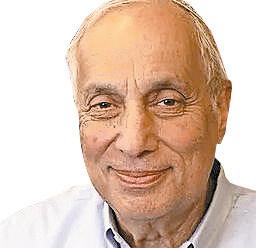


Our marching orders for the holiday of Sukkot, which climaxed last weekend, were straightforward: eat in a sukkah, and be joyous.
This year, that was obviously a difficult command to follow.
The height of our joy is reached on Simchat Torah (celebrated around the world on Sunday, but in Israel on Saturday). Dancing with the Torah and singing took place on queue, but they were muted and accompanied by worries and tears.
In my synagogue and in my extended family, as in many others throughout the Jewish world, what happened on Saturday was unimaginable and still not quite comprehensible.
We had dinner Friday night with a couple planning to fly to Israel right after yom tov for a
grandchild’s wedding; on Saturday in shul, congregants — Orthodox people who are isolated from the news cycle on Saturday morning and do not normally answer their phones on Shabbos — reported seeing repeated messages from their children, siblings and parents in Israel; they answered. Others, IDF reservists, received their call-up orders when they answered their phones.
The first I heard the news was when one of our rabbis added a special prayer on Saturday morning while referencing a large but unknown number of casualties. It was all quite vague. We’ve prayed for terror victims before. But this was different.
Iunderstand that not everyone is plugged into what’s happening in the Middle East, and that the lives of Israelis or Jews in general is not at the top of their worry list. The best I hope for is that they’re not among those described by Dara Horn in her book, “People Love Dead Jews,” but many in fact are; after all, for centuries Jews have been viewed as a nuisance, as the cause of all problems from the Black Plague to 9/11 to conflict in the Middle East.
Always, in many eyes, the Jews are at fault; if
they’d just go away life could be much simpler for everyone else.
But if 2,000 years of murderous persecutions didn’t eliminate the Jewish people, we’re certainly not going away now … not now when, for the first time in 2,000 years, we can defend ourselves.
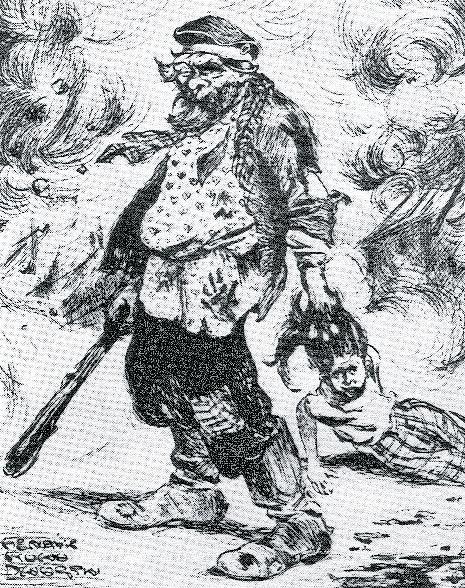
There’s no moral equivalence between the actions of the terrorists (not “militants,” as they were called throughout Sunday’s New York Times) who explicitly targeted civilians and tortured, kidnapped and murdered more than 1,000 civilians, wounding and maiming a couple of thousand more, in one day. This was Israel’s 9/11, but as if more than 40,000 — and not 3,000 — Americans were killed.
During Israel’s 75 years as a modern state, there have been many opportunities for peace, but the best of these were rejected by Palestinian leaders and ultimately by the Palestinian street.
For anyone who has not previously comprehended the meaning of the cry, “Palestine will be free from the river to the sea,” as a call for the liquidation of the Jewish state and its people, this weekend’s slaughter ought to be a wake-up call.
But I won’t bet on it.
bases — to lend support. Today, my children warn me of the risks of advanced age. I have been learning that it’s much easier for me to do — to act — than to hold back. To refrain from acting is its own kind of pain.
Many in my generation — the generation born during or just after the Shoah, the “Never Again” generation — tell me that they are experiencing similar feelings. But watching young Jews all over the world flying to Israel to lend a hand, witnessing young Israelis putting their lives on the line to defend Israel, while frightening, is also exhilarating.
Now is the time to call family and friends in Israel to express solidarity; now is the time to lobby our political leaders, reminding them that Israel’s war against terror is also America’s war against terror; now is the time to gather in the tens and hundreds of thousands in cities across America, Europe and the world, to declare, unequivocally, that we stand with Israel.
My head tells me that Israel will prevail, but my heart is shattered.
In the midst of the tears for the bereaved, prayers for the dead and tefillot for the injured, there is unabating hope and belief in the opening words of this week’s Torah reading: “And there was darkness on the face of the deep. And the Lord said, ‘Let there be light,’ and there was light.” Light will come from darkness.
This is not a kumbaya moment when we rush to end a conflict. Rather, it’s one in which Israel’s been shaken awake (even if the world isn’t fully there). Israel will not — it cannot — turn the other cheek. Having for decades searched for peace while mitigating the scale of its wars and their toll, Israel will seek to comprehensively deal with a deadly and entirely immoral adversary … a foe for whom peace itself is the enemy because it would block an unquenchable desire to add Israel’s 8 million Jews to Hitler’s 6 million body count. At this moment, we should be on Israel side unequivocally. Those who are not should stand back. Anything short of that is to endorse the evil that unfolded on Judaism’s most joyous day.
From West Hempstead, a personal reflection
Howard Bressler
Like everyone in our community and all rightminded people in the world, I am horrified by the heinous terrorist attacks that occurred in Israel over the past couple of days. The deliberate, premeditated slaughter of hundreds of civilians,
There is a time for war and a time for peace. Now is the time for war. One day it will be time for peace.
on one of the holy days of the Jewish year, by a genocidal terrorist group is beyond description in words.
We know that in wars fought in civilian areas, civilians are unfortunately killed. But to specifically plan for the wholesale, deliberate murder of families in their homes, concert-goers and others, and the kidnapping of old people, children and women to use as bargaining chips or psychological warfare props, are things that boggle the civilized mind — and thrill only the diseased one.
This attack was a terrible blow for Israel and Jews worldwide. It is reminiscent to me of the Yom Kippur War. I was too young to really understand what was happening when that war began, but I remember the sense of fear that permeated the adults around me, and the nervous prayers led by my kindergarten teachers. That same feeling of desperately needing and not being able to access information (because of the holiday) afflicted me this weekend.
Everyone was adding bits of information they had picked up from newspapers, messages conveyed through neighbors, and the news just kept
getting worse. Our enemies have wounded us, and more pain is likely to come. But unlike that war in 1973, I do not truly fear for Israel’s survival. She is strong, and if our enemies were looking to capitalize on the disunity that has wracked Israel for many months — they may have scored a blow, but they have badly miscalculated, because when the threats come from without, the core within hardens.
This past Shabbat, Shemini Atzeret, we read Kohelet. And Kohelet instructs us that there is a time to weep and a time to laugh, a time to wail and a time to dance. But what happens when those things need to be done at the same time?
Simchat Torah is always a time of rejoicing and dancing, singing and glorifying. But this Simchat Torah was also a time to weep and wail. So our celebrations were tempered and our vigilance heightened, but we did dance. And we did sing. Because to do otherwise would be to allow our enemies to take even more than they already have. And for what they have taken, we will extract a price.
There is a time to kill and a time to heal. We are unfortunately now forced to do the former and in
the process are doing the latter.
There is a time to wreck and a time to build. Now we will wreck the infrastructure and hopefully the leadership of our enemies, and continue to build our homeland.
There is a time to rend and a time to mend. We rent our spiritual clothing these past days, and hopefully we are mending our people.
There is a time to love and a time to hate. We are showing our love to our brothers and sisters and venting our hatred on those who seek to destroy our brothers and sisters.
There is a time for war and a time for peace. Now is the time for war. One day it will be time for peace.
Howard Bressler is a resident of West Hempstead. An attorney, he is author of “Wrong Conclusion, No Resolution: United Nations Security Council Resolution 2334’s Erroneous Conclusions on the Legality of Israeli Settlements in Judea, Samaria and Jerusalem” and “The Layman’s Guide to Surviving Cancer: From Diagnosis Through Treatment and Beyond” (Langdon Street, 2014).
THE JEWISH STAR October 13, 2023 • 28 Tishrei 5784 21
Am Yisrael Chai ve’yichyeh. Yehi Or.
This should remind everyone: The slogan, ‘Palestine will be free from the river to the sea,’ is a call for liquidation of the Jewish state and its people.
Caricature of a marauding Russian soldier and one of his victims in 1906 Białystok pogrom in which at least 75 Jews were murdered.
Ukraine’s valorous fight and its Shoah history
calls to resign, Rota eventually relented and quit his post, while Canadian Prime Minister Justin Trudeau and Foreign Minister Mélanie Joly offered shamefaced apologies.
“When oh, we all start arguing the history of the Jews,” sing LCD Soundsystem in “Call the Police,” their hit single from 2017, “You got nothing left to lose/ And it gives me the blues.”
The lyrics are a nod to the idea that a fixation with Jews — what they have done, what they do and what they are apparently capable of — is the last intellectual refuge of the scoundrel. When the song was released, the immediate reference for that line was the growing and bitter polarization in America, but to my mind, it’s a valid observation in other contexts as well.
Like the manner in which the Holocaust has been shamefully manipulated and distorted in the context of Russia’s brutal invasion of Ukraine, now on the cusp of its second year.
A brief overview of widely reported recent events is in order.
On Sept. 22, Ukraine’s Jewish President, Volodymyr Zelenskyy, addressed the Canadian parliament in Ottawa. One of the members of the audience — the recipient of a warm standing ovation after he was introduced as “a Ukrainian hero, a Canadian hero” by Speaker of the House of Commons Anthony Rota — was 98-year-old Yaroslav Hunka, who had reportedly fought for Ukraine’s independence during World War II.

Only it turned out that Hunka wasn’t a hero but very possibly a war criminal who had served with the First Ukrainian Division, otherwise known as the 14th Waffen Grenadier Division of the Nazi SS.
Once Hunka’s true identity was revealed, the fallout was pretty swift. After initially resisting
“It was a horrendous violation of the memory of the millions of people who died in the Holocaust,” said Trudeau, while Joly called the spectacle “an embarrassment to Canadians.”
Yet as the opposition and Canadian Jewish groups both pointed out, the remorse, however genuine, doesn’t explain how such a ghastly decision was made and implemented. In that light, Trudeau’s claim that the fault was essentially Rota’s (because it was the former Speaker who extended the invitation to Hunka) seems almost cowardly.
After all, the prime minister of Canada should be aware that among the more than 1 million people of Ukrainian descent in his country, there are a significant number of apologists for crimes committed by Ukrainians during the war against Jews, Poles and anti-Nazi resistance fighters.
Trudeau should also consider that since Canada provided a haven to many of these criminals after the war, the appearance of a nonagenarian Ukrainian on a VIP guest list should at the very least have triggered some due diligence on the part of his office.
The scandal also raises deeper questions about how the history of the Jews in that part of the world, and especially the Holocaust that descended upon them, should be presented in the context of the region’s current turmoil.
Ukraine is among the grimmer examples of the Nazi slaughter of Jews, with nearly 1 million executed by mobile firing squads — the “Holocaust by bullets” some call it — and up to 1.6 million exterminated overall, often with the active assistance and participation of Ukrainian collaborators.
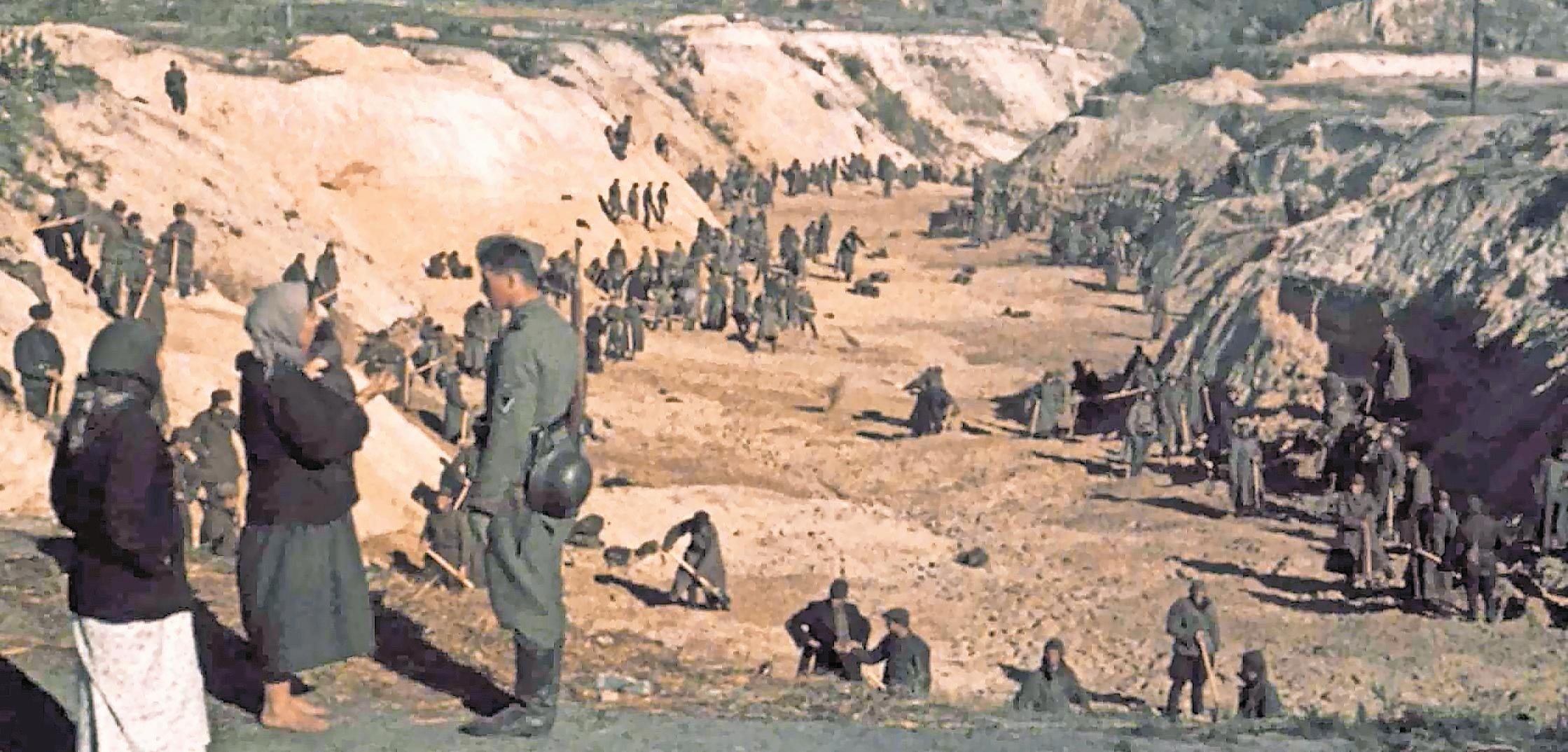
As Yad Vashem, Israel’s national memorial to the Holocaust, summarizes it: The “murder of Ukraine’s Jews was mostly carried out by the Einsatzgruppen (the special mobile units that shot
Jews) and SD (Nazi intelligence service). They were helped by Ukrainian auxiliaries who gathered the Jews, guarded them, and in many instances, participated in their killing. Those who sheltered Jews were in mortal danger from the Germans as well as from some of their neighbors. Despite the danger, there were individuals and sometimes entire villages who offered Jews shelter.”
There is no excuse for downplaying or ignoring this history, even if it’s in the name of an ostensibly noble cause, like supporting Ukraine’s present resistance to Moscow’s attempts to wipe it from the map. In fact, doing so actually weakens the case because it suggests that Ukrainians and their supporters want to cover up the less savory aspects of their country’s past, and is thus a gift for Russian propaganda.
The Hunka scandal was, in that sense, a real gift for the Russians in their quest to persuade a skeptical world that Ukraine is run by neo-Nazis. And without giving any quarter to Vladimir Putin’s regime, it’s important to understand Ukraine’s
wartime history in all its complexity and without any whitewashing.
Yes, some people will argue that the record of collaboration with the Nazis makes Ukraine unworthy of support 80 years later — logically and morally, an argument that is full of holes — but sanitizing that history is hardly the answer to them.
It further obscures the fact that the Russian regime constantly instrumentalizes and exploits the Holocaust and has been doing so since the last years of Stalin’s dictatorship.
The Communist Party’s pet historians stamped upon any accounts of the Holocaust that explained it for what it was — a war of mass extermination against the Jews — in favor of a revised account that substituted the critical word “Jews” with “Soviet citizens.” The only time they were prepared to acknowledge the Jewish character of the Holocaust was when they used it as a stick to beat the State of Israel, with official Soviet propaganda depicting Israeli leaders as Nazis who had
Send this clippable backgrounder to your friends Zionism 101: Just the facts
Zionism is the movement for the self-determination and statehood for the Jewish people in their ancestral homeland, the land of Israel. The vast majority of Jews around the world feel a connection or kinship with Israel, whether or not they explicitly identify as Zionists, and regardless of their opinions on the policies of the Israeli government.

While there has been a continuous Jewish presence in the land of Israel over the millennia, the yearning to return to Zion, the biblical term for both the land of Israel and Jerusalem, has been a cornerstone of Jewish communal life since the Romans violently colonized the land, sending Jews into exile 2,000 years ago.
An earlier exile by the Babylonians produced perhaps the most well-known lamentation — “By the rivers of Babylon, there we wept as we remembered Zion.” That connection between Jews and the land, and the hope for repatriation, is deeply embedded in Jewish prayer, ritual, literature and culture.
What is known as modern Zionism emerged in the mid-19th century in tandem with the rise of the nation-state and widespread national liberation movements across Europe. In the case of the Jews, it was
also in response to a long history of intense anti-Jewish hatred, persecution, and discrimination in countries and societies across the world where Jews lived, including in Europe, the Middle East, and North Africa. Its advocates believed that a modern Jewish state would provide Jews with a safe haven from the bigotry and endangerment they suffered perennially as a minority
culture among non-Jewish majority cultures, and ensure that Jews have the same right to nationhood and self-determination as any other people, along with the same protections that are typically afforded to other nations.
Zionism was also a cultural and national renaissance movement which sought to enable the Jewish people to revive their language,
Hebrew, and reestablish self-determination over their traditions, culture, religion and education.
In the late 1800s, the “father” of modern Zionism, Austrian journalist Theodor Herzl, consolidated various strands of Zionist thought into an organized political movement, advocating for international recognition of an independent and sovereign Jewish state in the land of Israel.
Today, with a Jewish sovereign state a reality, Zionists believe in and support the right of the democratic State of Israel to exist as a Jewish homeland. Israel is the only Jewish state in the world. Being a Zionist is distinct from supporting the policies of the government of Israel.
Zionism is a big tent movement that includes those across the spectrum from progressives, moderates and conservatives and those who are apolitical. There are Zionists who are critical of Israeli policies, just as there are Zionists who rarely voice disagreement with the Israeli government.
There are diverse views among Zionists about the Israeli-Palestinian conflict, about how to promote peace, whether to support a twostate solution, and about approaches to Israeli settlements. Being critical of Israeli policies is no more anti-Zionist than being critical of American policies is anti-American.
Zionism does not preclude support for Palestinian self-determination and statehood. For some Zionists, support for a two-state solution is the realization of self-determination for Jews and Palestinians alike.
There are also millions of non-Jews who consider themselves Zionists and supporters of the Jewish state, who are motivated by factors including religion, history, security or politics.
October 13, 2023 • 28 Tishrei 5784 THE JEWISH STAR 22
Viewpoint
BEN COHEN
Soviet POWs cover a mass grave after Babi Yar massacre days earlier, Oct. 1, 1941. Johannes Hähle via WikiCommons
&
Cohen on page 24
This Zionist fact sheet was published in September 2016 by the ADL.
See












THE JEWISH STAR October 13, 2023 • 28 Tishrei 5784 23 TO GIVE THEM THE BEST THEY GAVE YOU THE BEST NOW IT’S YOUR CHANCE PARKER CARE. THE BEST. FOR THE BEST. Short Term Rehabilitation | Long Term Care | Home Health Care | Hospice | Palliative Care Inpatient And Outpatient Dialysis | Medical House Calls | Managed Long Term Care | Medicare Advantage Plan 271-11 76th Avenue New Hyde Park, NY 11040 | 877-727-5373 | parkerinstitute.org Wishing All A Happy & Healthy Passover! 1232241
May...
Continued from page 6
an act of aggression.”
Russia pledged to “refrain from the threat or use of force against the territorial integrity or political independence of Ukraine.” Russia doesn’t keep its promises. America should.
7. Our NATO allies are freeriding.
According to the Kiel Institute for the World Economy, total European commitments “are now twice as large” as America’s. That said, some of our allies require arm-twisting.
8. NATO expansion caused Russia to invade Ukraine.
NATO is a defensive, not aggressive alliance. Putin opposes NATO expansion because, as FDD’s Bradley Bowman has argued, NATO members are tougher to bully.
Besides, to join NATO requires the agreement of all members. Germany is among those who would not have given consent. Putin knew that.
9: There should be a “diplomatic solution.” Putin will not seriously negotiate until and unless he is convinced that it’s useless waiting for Americans to quit. Cutting aid leads him to conclude the opposite.
10. “Russia’s recolonization of Ukraine will not matter to most Americans.”
That outcome will be perceived, with justification, as an American defeat — one all the more significant for following Biden’s surrender in Afghanistan and Mr. Obama’s precipitate retreat from Iraq. Serious consequences, not difficult to imagine, will unfold over time. Down this road, the restoration of American greatness does not lie.
Weinreb...
Continued from page 19
knowledge that defiance was an option, that evil was also a choice that he could make.
Rabbi Samson Raphael Hirsch refines Nachmanides’s point: “If you eat the fruit of this tree of knowledge, you will come to decide for yourselves what is good and what is bad. Until now the L-rd defined ‘good’ and ‘bad’ for you. This fruit will cause you to rely upon your own ‘taste.’ A morality based upon human senses and not upon divine judgment will lead to moral ‘death’.”
Knowledge, wisdom, and intelligence are all positively valued by Jewish tradition. However, all of these wonderful traits can lead man to the worst of sins: hubris and arrogance. Man must realize that his knowledge is deficient, his intelligence incomplete, and his wisdom faulty.
Kohelet forces a wise man to confront his imperfection. The tree of knowledge must be avoided, lest we begin to think that we mortals can determine what is good and what is bad without input from our Creator.
This week, we begin the yearly cycle of Torah study. As we advance week by week, we will learn more about our Creator and much more about what He expects of us.
Continued from page 19
who years later are not where they were when that transition took place.
This is why the third ingredient to maintaining religiosity is CONSISTENCY. Go to shul daily. Have an unbreakable prep-for-Shabbos routine. Learn some Torah every day.
Knowledge is empowering. It allows for moderation and the ability to be consistent to be in your own hands, at your own pace. It is also best when not demanded or monitored by a community or authority figure.

Our lives are imperfect. That is the human experience. But with knowledge, moderation, and consistency, we can set ourselves on a trajectory of constant growth.
Chava failed. She didn’t have the knowledge she needed, because she was just told something and didn’t seek to understand better.
She had one mitzvah, and she made it much bigger than it was. No moderation. And there was no consistent behavior that could have helped her avoid the serpent’s snare.
Now that we have celebrated Simchas Torah, and are beginning a new cycle with Bereishis, it is a wonderful opportunity commit to increasing knowledge, leading to moderation in practice, and the consistency that helps us grow in slow but manageable steps, so we never remain stagnant in our Jewish journey of life.
munity in which the overwhelming majority are members of a party where support for Israel is on the wane. GOP politicians gain no traction outside of the minority who are Orthodox or politically conservative for standing with Israel, and Democrats don’t pay a price for undermining it.
Moreover, the intersectional left, which promotes toxic ideas like intersectionality and critical race theory that normalize antisemitism because they falsely define Jews as possessing “white privilege” and Israel as an oppressor state of people of color, has made some inroads within the Jewish community. Mainstream liberal groups like the Anti-Defamation League have bent their knee to woke ideas like the diversity, equity and inclusion (DEI) catechism that leads to quotas that harm Jewish interests and the principle of equality. Indeed, the theme of antiIsrael protests that have been held in cities across the nation is to link Zionism, Israel and the Jews with “white supremacy.”
Under these circumstances, it’s hardly surprising that support for Israel is down among Democrats, and that more American Jews are willing to support anti-Zionist and even antisemitic groups like Jewish Voice for Peace and IfNotNow that target Israel.
Can liberal Jews find their voices?
As dismal as the situation appears and as much as the demographic implosion of non-Orthodox Jewry bodes ill for the pro-Israel community, there is still some hope.
Billet... Tobin... Cohen...
Continued from page 20
ish community that would make its mark on the nation’s politics in this era. And that was something that post-war American Jewry implicitly understood.
Fast-forward 50 years, and it’s not just that most of those who were Jewish leaders then are no longer alive. That Jewish community that defined itself by its memory of the Holocaust and devotion to the survival of Israel against the odds is itself dead.
In its place is a Jewish world that is markedly different in a number of respects.
Now, there’s a lack of Jewish peoplehood. Surveys, like those conducted by the Pew Research Center, paint a picture of American Jewry in which most are highly assimilated, and less connected to Judaism and synagogues, as well as Jewish organizations and Israel. It is a community in which universal values are prioritized over Jewish particularism.
If the fastest-growing group that may soon be the largest demographic sector is referred to as “Jews of no religion,” then it is unsurprising that it is one whose members are increasingly unlikely to care much about a sectarian Jewish state. Though today’s Jews are not ashamed of being Jewish, more and more of them lack a sense of Jewish peoplehood — the key factor in building a sense of communal identity.
It is also a politically polarized Jewish com-
Since the Hamas atrocities, some of the legacy groups that had lost their way to the point of being reflexively critical of Israel seemed to have remembered that standing with the Jewish state is their job. Though many of them have acted as if Jewhatred is only to be found on the political right, the vile attitudes of Hamas and its leftist Western apologists have forced them to confront the factor that is really driving modern antisemitism.
Even ADL CEO Jonathan Greenblatt has been outraged by the way liberal media outlets, like MSNBC, which he says he “loves,” is committed to moral equivalence between Israelis and the terrorists who are massacring them. The same can be said of American Jewish Committee CEO Ted Deutsch.
It’s encouraging to hear liberal Jewish leaders find their voices in this manner. But having squandered their political capital on non-Jewish liberal causes, it’s far from clear they are still capable of rallying American Jewry to face the challenge of the coming days.
As with President Joe Biden, the test of American Jewry is not so much whether they have something to say in support of Jewish victims, but whether they are willing to stand with Israel once a ground invasion of Gaza begins.
At that point, they will have to decide.
Will they pressure their Democratic Party allies in the White House to stand with an Israeli campaign whose necessary goal will be to defeat Hamas and evict it from the Gaza Strip as the terrorists employ human shields — both Jewish hostages and Palestinian civilians — to save themselves.
Will they support measures to end all aid to the Palestinians resumed by the Biden administration after Trump’s cuts?
Will they demand that the United States re-
scind its ransom payments to Hamas’s Iran coconspirator and end the quest to appease Tehran?
Will they support not just US resupply of arms to Israel but oppose any efforts to pressure Israel to stop short of victory, as well as make concessions to achieve a mythical two-state solution the Palestinians have repeated rejected rather than force them to pay a price for terrorism?
Will they unite in support of a traditional fundraising campaign to which a broad cross-section of American Jewry will commit to the rebuilding of the communities devastated by the terrorist attacks, help for the bereaved families and the building of a stronger defense infrastructure?
If not, all the sound bites and social-media posts expressing their solidarity with Israel will be meaningless.
We know the crowds at this week’s pro-Israel rallies will be smaller than those in the past, but they will still be filled with those who care about the Jewish state, and who want to answer the demonization of Jews and the antisemitism that drives those supporting the terrorists. The test they will face in the days to come is one that their leaders and organizations are ill-prepared to meet after so many years of neglecting their pro-Israel brief.
Still, there is still an opportunity for a generation of failed Jewish leaders and ordinary Jews to step up and follow in the footsteps of those who rallied for Israel and Soviet Jewry. The beleaguered people of Israel and history will judge them harshly if they fail. learned their trade from their own murderers. They are still doing it.
Continued from page 22
A few weeks ago, Maria Zakharova — the Russian foreign ministry’s spokesperson who once opined that if you wanted to understand how Donald Trump won the 2016 US election, “you have to talk to the Jews” — said she wished that “the ancestors of the current Israeli elites knew that their direct descendants were sponsoring a regime that glorifies their murderers and the ideology of the Holocaust.”
And what was the trigger for this ire? A battery of Israeli anti-aircraft missiles supplied to Ukrainian forces? A delivery of tanks? No. Zakharova was angered by the speech to the International Atomic Energy Agency (IAEA) by Israeli atomic chief Moshe Edri, in which he confirmed that Israel had supplied Ukraine with equipment to safeguard its Zaporizhzhia nuclear plant — the scene of heavy fighting — from a potentially catastrophic accident that would reverberate well beyond Ukraine’s borders.
The lesson is clear: As Jews, we have to vocally and confidently counter Ukrainian revisionism without giving succor to the present-day Russian foes of an independent, democratic Ukraine.
It sounds easy, but it isn’t. Too many countries have shown themselves willing to prettify their Holocaust-era records in order to advance their agendas today, often couching their revisionism in language sympathetic to Jewish suffering. We have been warned.
October 13, 2023 • 28 Tishrei 5784 THE JEWISH STAR 24 1230248 • Training and Support • Computer Repairs and Tuneups • Consulting from Purchase to Setup • PC and iPhone Training 5 Towns Computer Services 718-490-0192 In Person and Remote Computing Solutions Expert Personal Care 1231338 The Chosen Paper New York’s most trusted Jewish newspaper. Honest reporting. Torah-true.


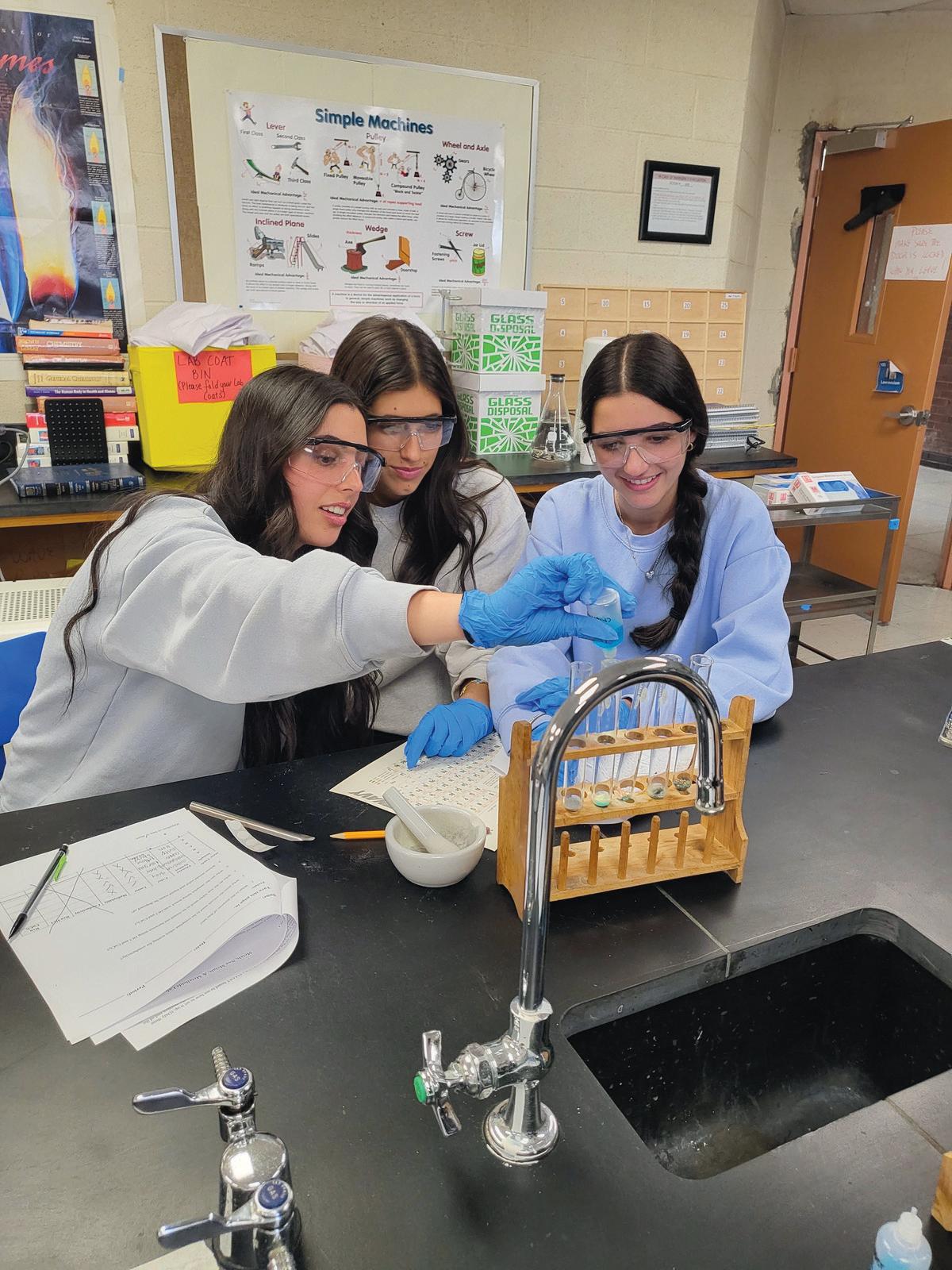

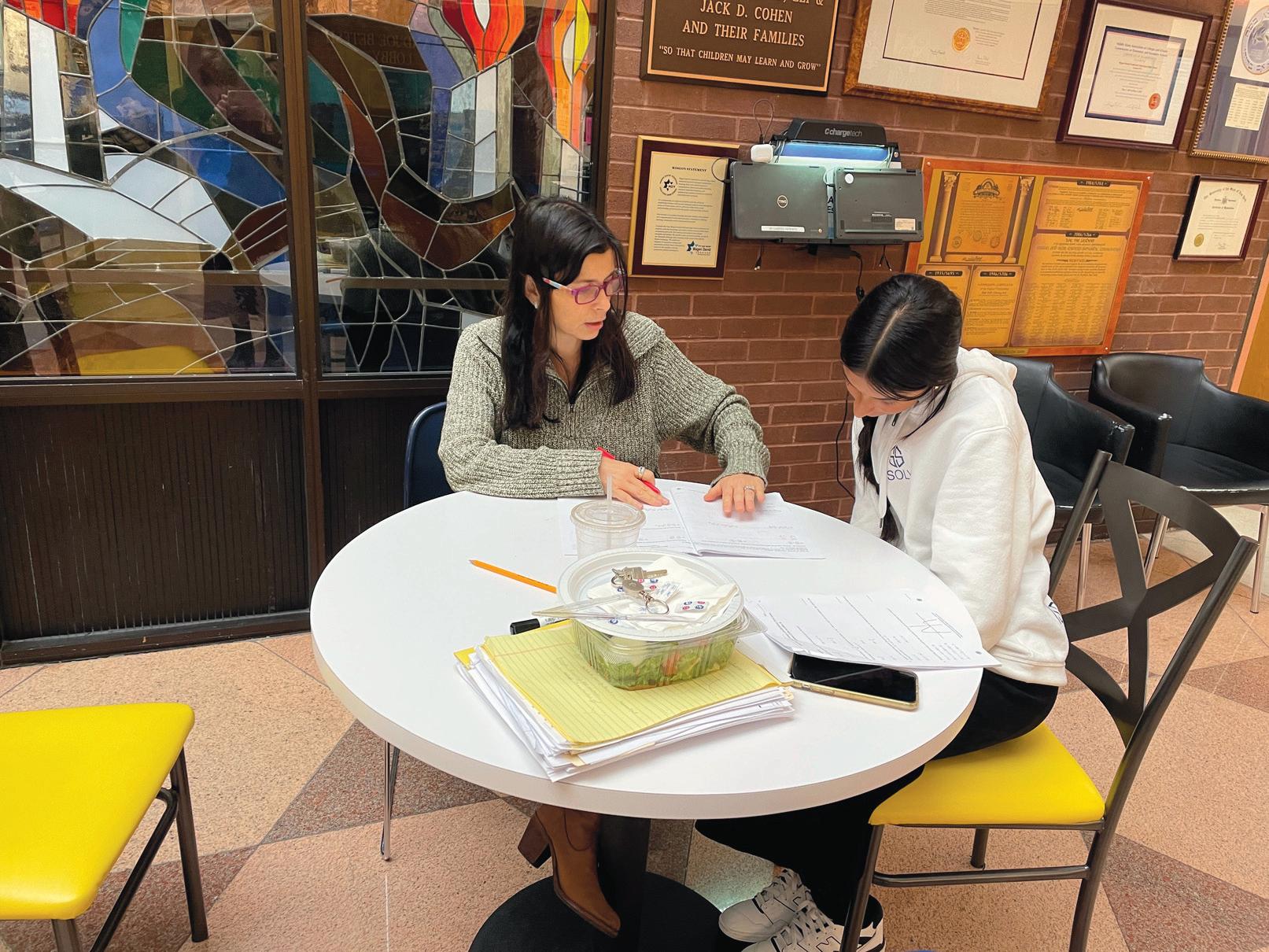
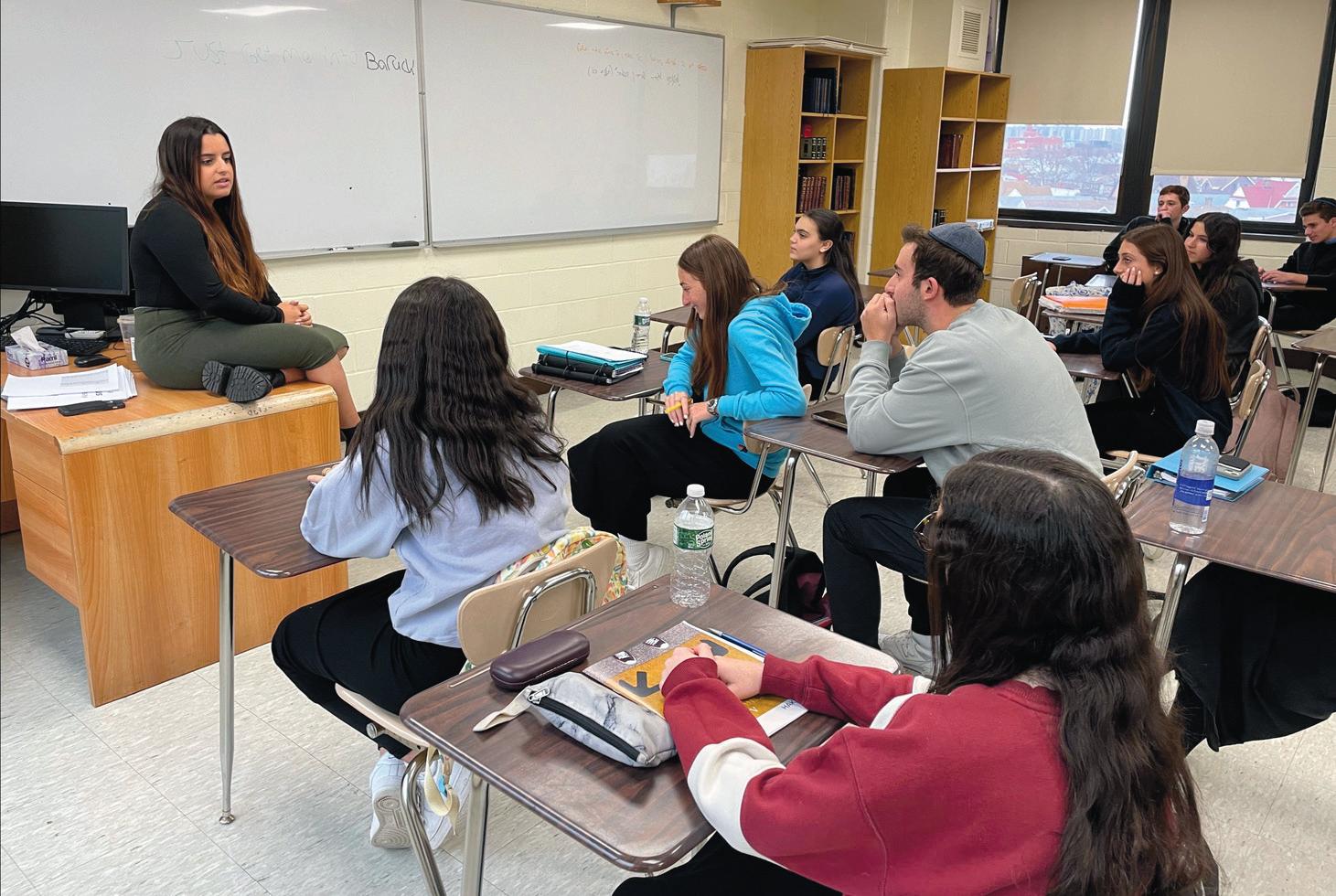
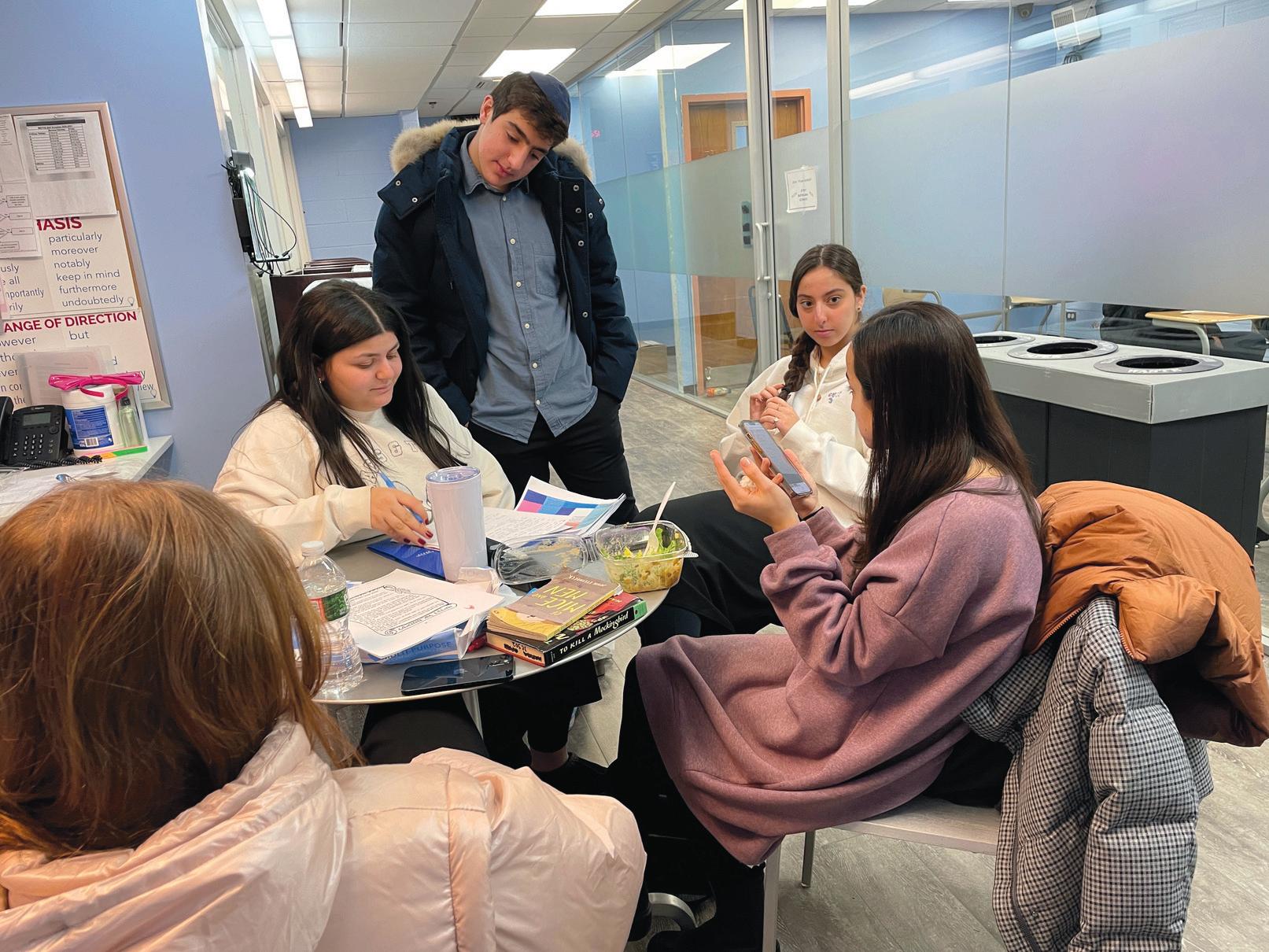
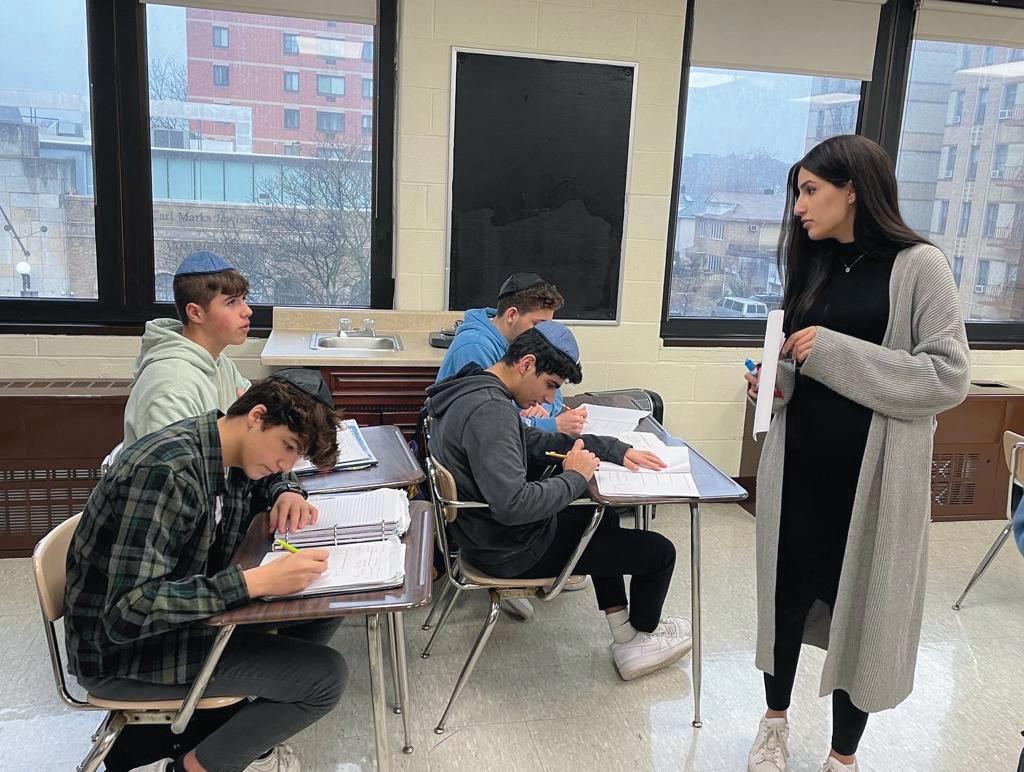
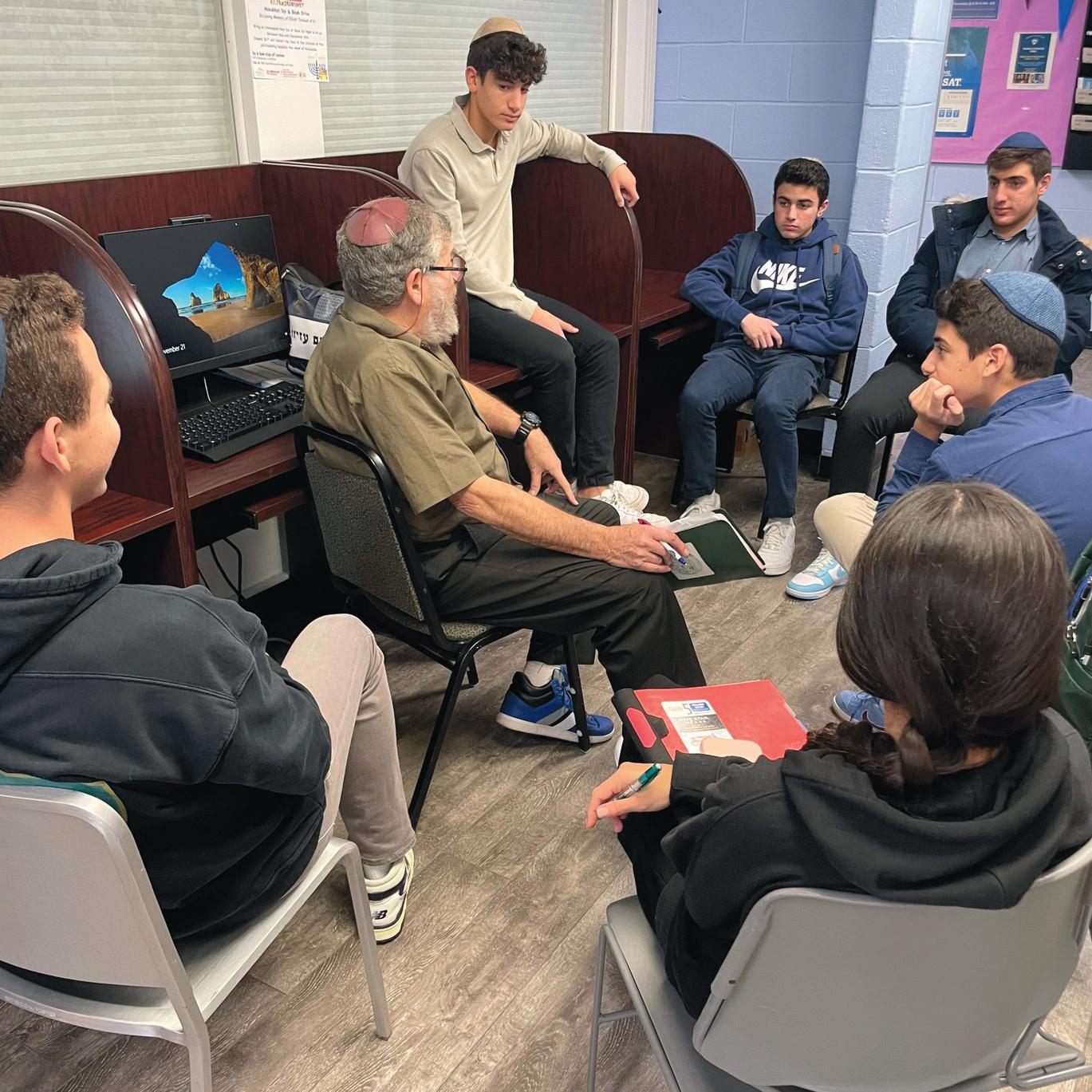
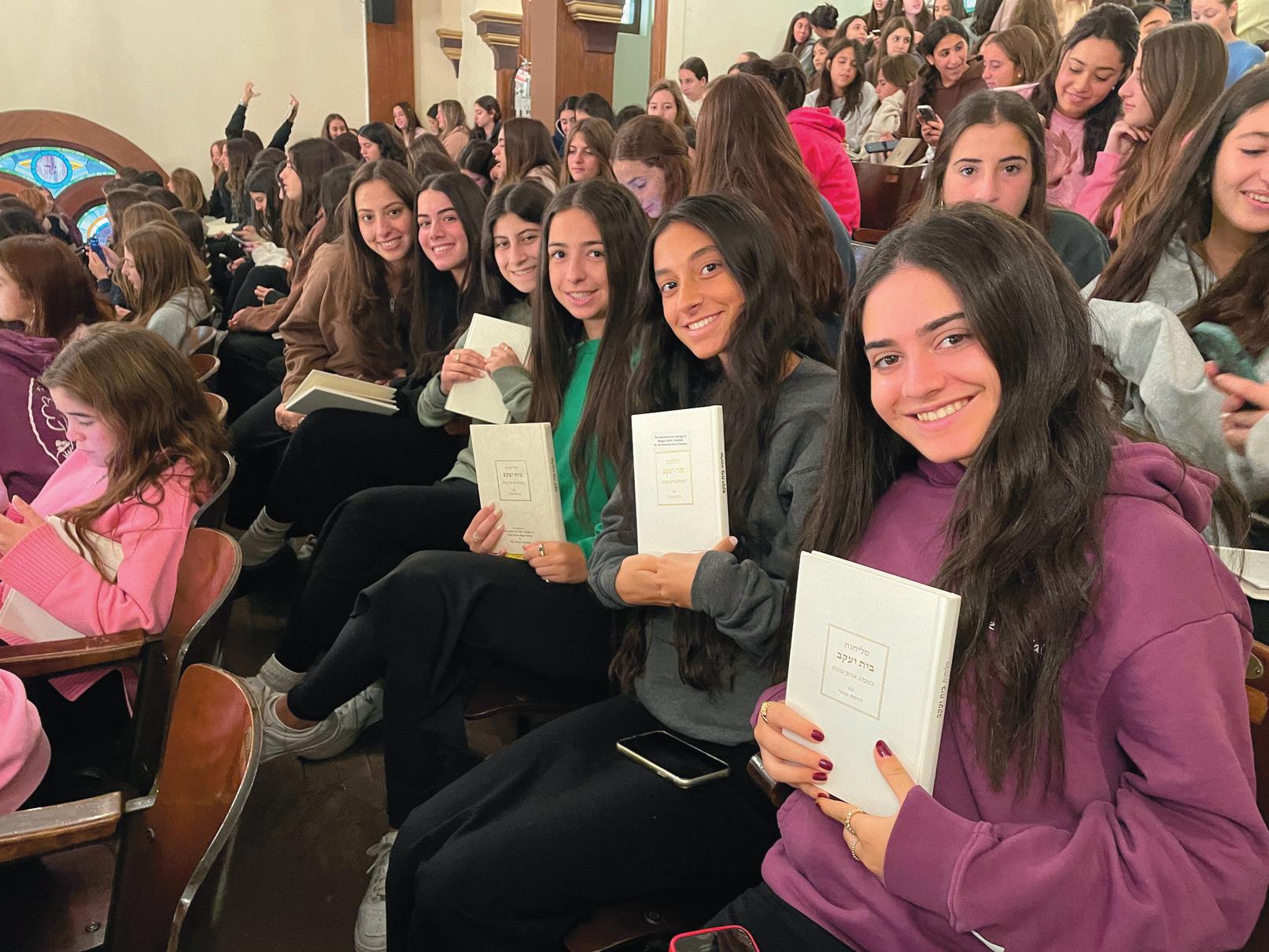


THE JEWISH STAR October 13, 2023 • 28 Tishrei 5784 25 M A G E N D A V I D Y E S H I V A H H I G H S C H O O L O P E N H O U S E Save The Date Tuesday, November 14th 7801 Bay Parkway 7:30pm Always Emulated, Never Duplicated Dr. Daniel J. Vitow, Head of School Rabbi Eli J. Mansour, Rabbinical Leader 2 0 2 3 1228664
We stand with Israel.

TheJewishStar.com











October 13, 2023 • 28 Tishrei 5784 THE JEWISH STAR 26 Google Search You Know Us, Let Us Know You! 718.975.9000 Lowest Prices. Any Make. Any Model. Any Time. Huge Invenry. 2753 Nostrand Avenue | Brooklyn, NY 11210 | www.PlazaAutoLeasing.com Open: Monday - Thursday 9am - 6pm | Friday 9am - 1pm | Sunday temporarily closed | Plaza Auto Leasing & Sales is a dba of Crystal Motors of Bayside, Ltd | DCA Lic#: 1312589 | DMV#: 7084665 | find a car leasing company who who has decades of leasing expertise who has the best and honest prices who has a hassle-free process in place who has extended hours who has same day delivery who helps with lease returns who makes the entire process easy who puts the customer first who is friendly who works out of state who delivers to your home who has repeat clients who has an insurance department who fights for credit approvals Plaza Auto Leasing & Sales ArtFried Creative.com






















































































































 Jewish Star columnist
Jewish Star columnist








































